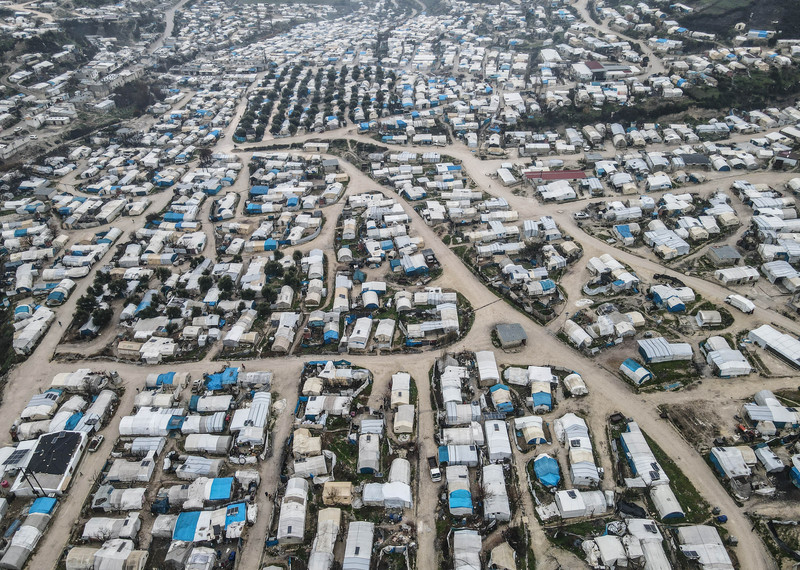- Amnesty International’s Annual Report for 2022 highlights double standards throughout the world on human rights and the failure of the international community to unite around consistently-applied human rights and universal values.
- The West’s robust response to Russia’s aggression against Ukraine contrasts sharply with a deplorable lack of meaningful action on grave violations by some of their allies including Israel, Saudi Arabia and Egypt.
- Women’s rights and freedom to protest are threatened as states fail to protect and respect rights at home.
- As the Universal Declaration of Human Rights turns 75, Amnesty International insists that a rules-based international system must be founded on human rights and applied to everyone, everywhere.
Russia’s full-scale invasion of Ukraine in 2022 unleashed numerous war crimes, generated a global energy and food crisis and sought to further disrupt a weak multilateral system. It also laid bare the hypocrisy of Western states that reacted forcefully to the Kremlin’s aggression but condoned or were complicit in grave violations committed elsewhere, Amnesty International said as it launched its annual assessment of human rights around the world.
Amnesty International Report 2022/23: The State of the World’s Human Rights found that double standards and inadequate responses to human rights abuses taking place around the world fuelled impunity and instability, including deafening silence on Saudi Arabia’s human rights record, inaction on Egypt and the refusal to confront Israel’s system of apartheid against Palestinians.
The report also highlights China’s use of strong-arm tactics to suppress international action on crimes against humanity it has committed, as well as the failure of global and regional institutions – hamstrung by the self-interest of their members – to respond adequately to conflicts killing thousands of people including in Ethiopia, Myanmar and Yemen.
“Russia’s invasion of Ukraine is a chilling example of what can happen when states think they can flout international law and violate human rights without consequences,” said Agnès Callamard, Amnesty International’s Secretary General.
“The Universal Declaration of Human Rights was created 75 years ago, out of the ashes of the Second World War. At its core is the universal recognition that all people have rights and fundamental freedoms. While global power dynamics are in chaos, human rights cannot be lost in the fray. They should guide the world as it navigates an increasingly volatile and dangerous environment. We must not wait for the world to burn again.”
While global power dynamics are in chaos, human rights cannot be lost in the fray.
Agnès Callamard, Secretary General, Amnesty International
Shameless double standards pave way for further abuses
Russia’s full-scale invasion of Ukraine triggered one of Europe’s worst humanitarian and human rights emergencies in recent history. The conflict not only resulted in mass displacement, war crimes and global energy and food insecurity, it also raised the chilling spectre of nuclear war.
The response was swift with the West imposing economic sanctions on Moscow and sending military assistance to Kyiv, the International Criminal Court opening an investigation into war crimes in Ukraine and the UN General Assembly voting to condemn Russia’s invasion as an act of aggression. However, this robust and welcomed approach stood in stark contrast to previous responses to massive violations by Russia and others, and to pitiful existing responses on conflicts such as Ethiopia and Myanmar.
If Russia’s war of aggression demonstrates anything for the world’s future, it is the importance of an effective and consistently applied rules-based international order.
Agnès Callamard, Secretary General, Amnesty International
“Had the system worked to hold Russia accountable for its documented crimes in Chechnya and Syria, thousands of lives might have been saved then and now, in Ukraine and elsewhere. Instead, what we have is more suffering and devastation,” said Agnès Callamard.
“If Russia’s war of aggression demonstrates anything for the world’s future, it is the importance of an effective and consistently applied rules-based international order. All States must step up their efforts for a renewed rules-based order that benefits everyone, everywhere.”
For Palestinians in the occupied West Bank, 2022 was one of the deadliest years since the UN began systematically recording casualties in 2006, with at least 151 people, including dozens of children, killed by Israeli forces. Israeli authorities continued to force Palestinians from their homes, and the government is rolling out plans to drastically expand illegal settlements across the occupied West Bank. Instead of demanding an end to Israel’s system of apartheid, many Western governments chose to attack those denouncing it.
The USA has been a vocal critic of Russian violations in Ukraine and has admitted tens of thousands of Ukrainians fleeing the war, yet under policies and practices rooted in anti-Black racism, it expelled more than 25,000 Haitians between September 2021 and May 2022, and subjected many to torture and other ill-treatment.
EU member states opened their borders to Ukrainians fleeing Russian aggression, demonstrating that, as one of the richest blocs in the world, they were more than capable of receiving large numbers of people seeking safety and giving them access to health, education and accommodation. However, many kept their doors shut to those escaping war and repression in Syria, Afghanistan and Libya.
“Responses to Russia’s invasion of Ukraine gave us some evidence of what can be done when there is political will. We saw global condemnation, investigations of crimes, borders opened to refugees. This response must be a blueprint for how we address all massive human rights violations,” said Agnès Callamard.
The West’s double standards emboldened countries like China, and enabled Egypt and Saudi Arabia to evade, ignore and deflect criticism of their human rights record.
Despite massive human rights violations, amounting to crimes against humanity against Uyghur and other Muslim minorities, Beijing escaped international condemnation by the UN General Assembly, Security Council and Human Rights Council.
We need less hypocrisy, less cynicism, and more consistent, principled and ambitious action by all states to promote and protect all rights.
Agnès Callamard, Secretary General, Amnesty International
The UN Human Rights Council established a Special Rapporteur on the human rights situation in Russia and an investigative mechanism on Iran in the wake of deadly protests. But it voted not to further investigate or even discuss the UN’s own findings of potential crimes against humanity in Xinjiang, China, and discontinued a resolution on the Philippines.
“Countries applied human rights law on a case-by-case basis in a staggering show of blatant hypocrisy and double standards. States cannot criticize human rights violations one minute and, in the next, condone similar abuses in other countries just because their interests are at stake. It’s unconscionable and undermines the entire fabric of universal human rights,” said Agnès Callamard.
“We also need States that have so far failed to put their head above the parapet to take a stand against human rights abuses wherever they fall. We need less hypocrisy, less cynicism, and more consistent, principled and ambitious action by all states to promote and protect all rights.”.
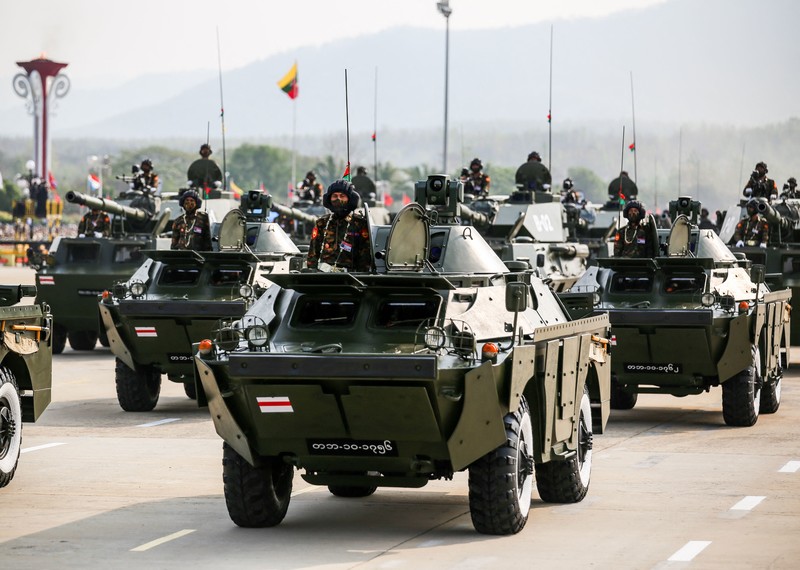
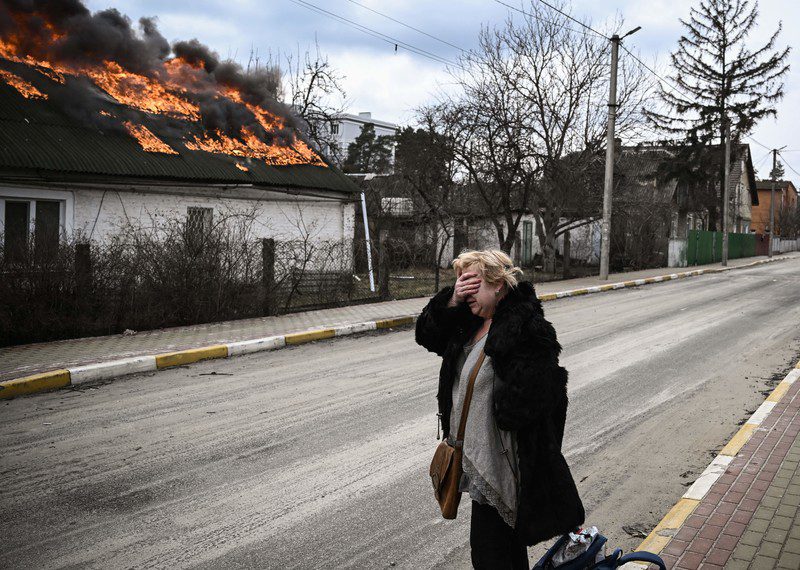
Ruthless repression of dissent across the world
In 2022, Russian dissenters were taken to court and media houses were shut down just for mentioning the war in Ukraine. Journalists were imprisoned in Afghanistan, Ethiopia, Myanmar, Russia, Belarus and dozens of other countries across the world where conflicts raged.
In Australia, India, Indonesia and the UK, authorities passed new legislation imposing restrictions on demonstrations while Sri Lanka used emergency powers to curtail mass protests against the spiralling economic crisis. The UK law gives police officers wide-ranging powers, including the ability to ban “noisy protests”, undermining the freedoms of expression and peaceful assembly.
Technology was weaponized against many, to silence, prevent public assembly or disinform.
Iranian authorities responded to the unprecedented uprising against decades of repression with unlawful force through live ammunition, metal pellets, tear gas and beatings. Hundreds of people, including dozens of children, were killed. In December, Peruvian security forces used unlawful force, especially against indigenous people and campesinos, to quell protests during the political crisis that followed the ousting of former president Castillo. Journalists, human rights defenders and political opposition also faced repression including in Zimbabwe and Mozambique.
In response to growing threats to the right to protest, Amnesty International launched a global campaign in 2022 to confront states’ intensifying efforts to erode the fundamental right to freedom of peaceful assembly. As part of this campaign the organization calls for the adoption of a Torture-Free Trade Treaty banning the production and trade in inherently abusive law enforcement equipment and controlling the trade in law enforcement equipment often used for torture or other ill-treatment.
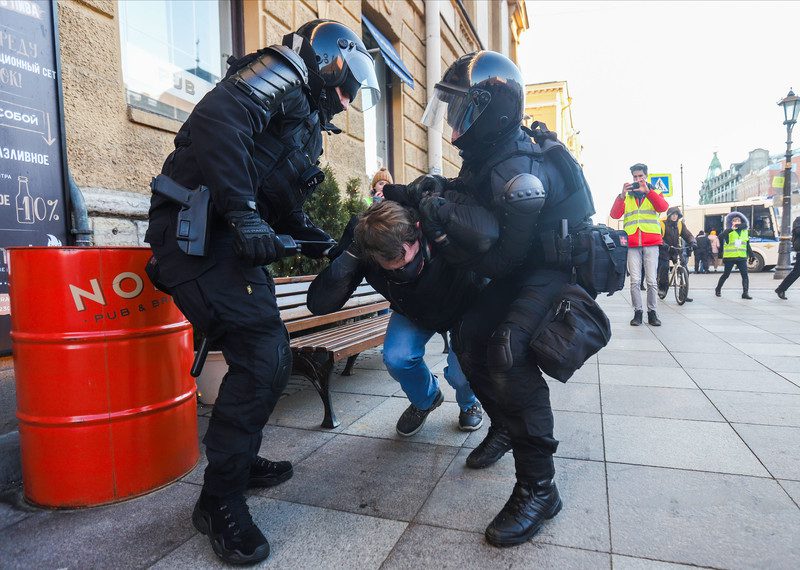
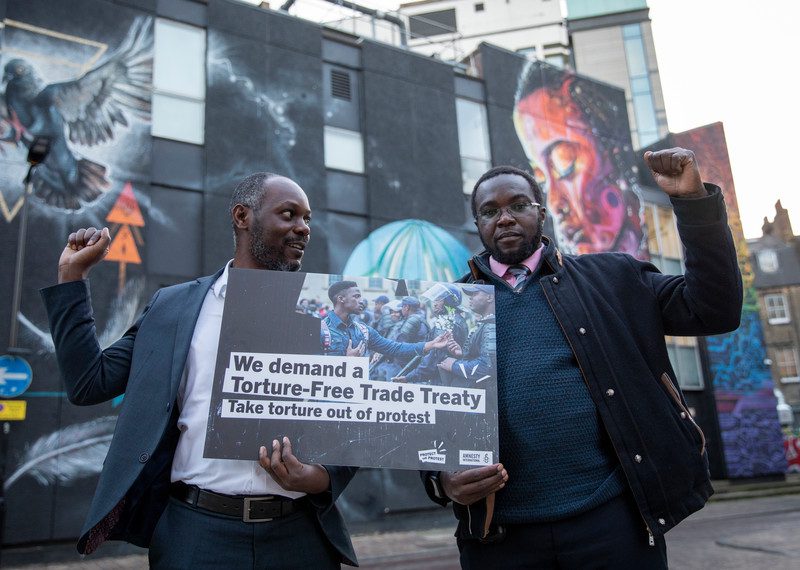
Women bear brunt as states fail to protect and respect rights
Repression of dissent and inconsistent approaches to human rights also had a stark impact on women’s rights.
The USA’s Supreme Court overturned a long-standing constitutional guarantee of the right to abortion, threatening other human rights, including the rights to life, health, privacy, security and non-discrimination for millions of women, girls, and people who can become pregnant.
By the end of 2022, several US states had passed laws to ban or curtail access to abortion, while activists in Poland were prosecuted for helping women access abortion pills.
States’ hunger to control the bodies of women and girls, their sexuality and their lives leaves a terrible legacy of violence, oppression and stunted potential.
Agnès Callamard, Secretary General, Amnesty International
Indigenous women continued to face disproportionately high levels of rape and other sexual violence in the USA. In Pakistan, several high-profile murders of women by family members were reported yet parliament failed to adopt legislation on domestic violence that had been pending since 2021. In India, violence against Dalit and Adivasi women, among other caste-based hate crimes, was committed with impunity.
Afghanistan witnessed a particularly significant deterioration of women and girls’ rights to personal autonomy, education, work, and access to public spaces, through multiple edicts issued by the Taliban. In Iran, the “morality police” violently arrested Mahsa (Zhina) Amini for showing strands of hair under her headscarf, and days later she died in custody amid credible reports of torture, sparking nationwide protests in which many more women and girls were injured, detained or killed.
“States’ hunger to control the bodies of women and girls, their sexuality and their lives leaves a terrible legacy of violence, oppression and stunted potential,” said Agnès Callamard.
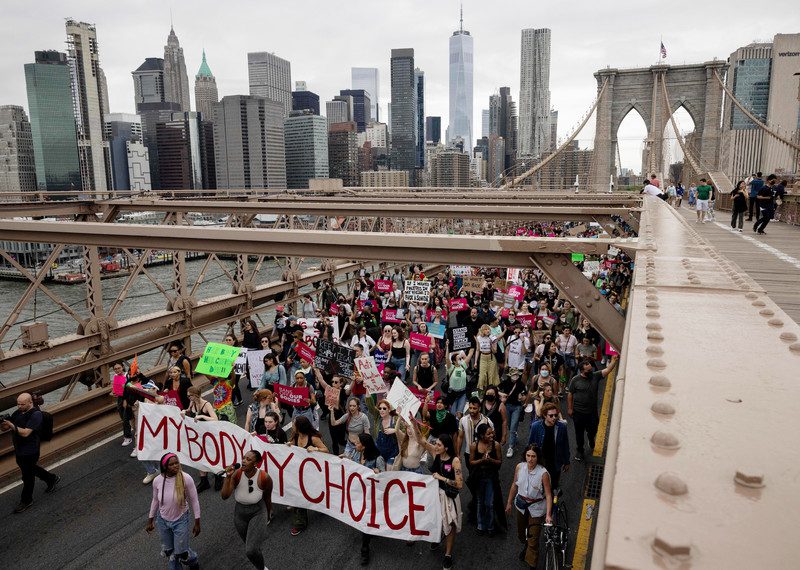
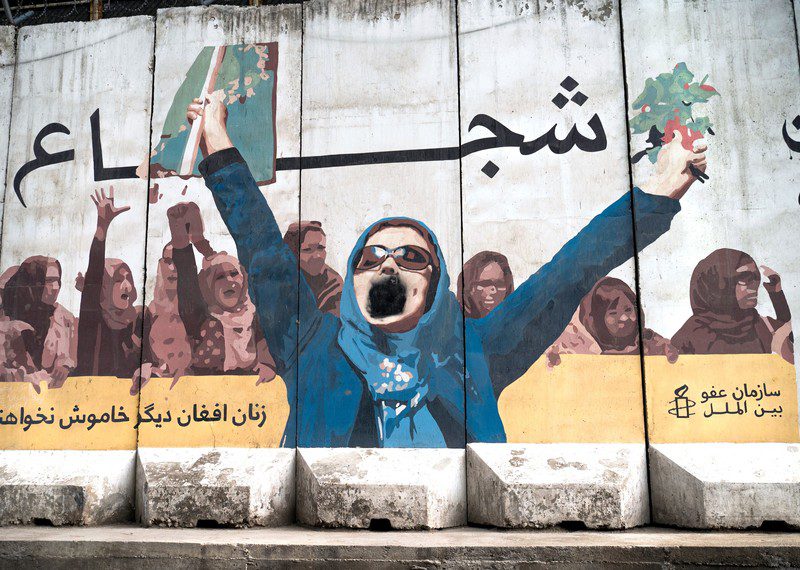
Global action against threats to humanity woefully inadequate
In 2022, the world continued to suffer the fall-out of the Covid-19 pandemic. Climate change, conflict and economic shocks caused in part by Russia’s invasion of Ukraine further compounded the risks to human rights.
Economic crises meant 97% of the population of Afghanistan were living in poverty. In Haiti, the political and humanitarian crisis, exacerbated by widespread gang violence, left more than 40% of the population facing acute food insecurity.
We stand no chance of surviving these crises if our international institutions aren’t fit for purpose.
Agnès Callamard, Secretary General, Amnesty International
Extreme weather conditions exacerbated by a rapidly warming planet triggered hunger and disease in several countries in South Asia and sub-Saharan Africa, including Pakistan and Nigeria where floods had a catastrophic impact on people’s lives and livelihoods and led to an outbreak of waterborne diseases, which killed hundreds.
Against this backdrop, countries failed to act in the best interests of humanity and address fossil fuel dependency, the main driver pushing us toward the biggest threat to life as we know it. This collective failure was another stark example of the weakness of current multilateral systems.
“The world is besieged by an onslaught of colliding crises including widespread conflict, cruel global economics with too many states burdened by unsustainable debt, corporate tax abuse, the weaponization of technology, the climate crisis and shifting tectonic plates of power. We stand no chance of surviving these crises if our international institutions aren’t fit for purpose,” said Agnès Callamard.
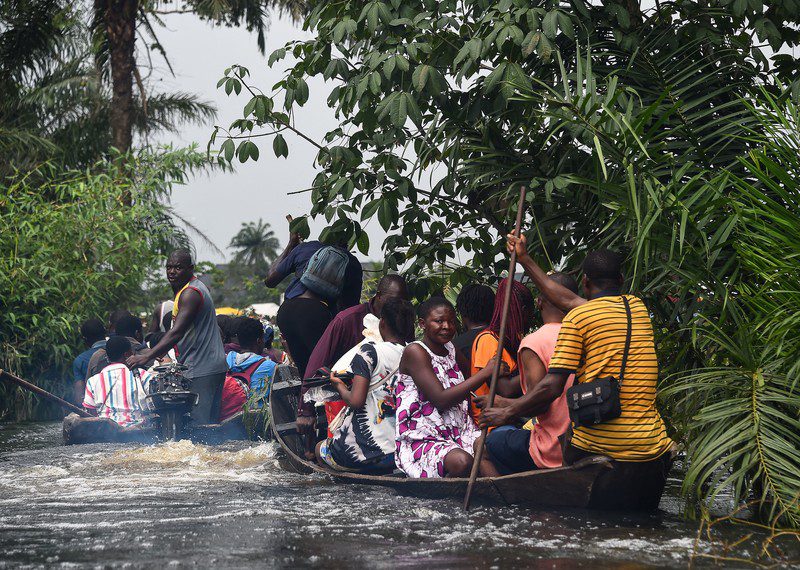
Dysfunctional international institutions need fixing
It is vital that international institutions and systems that are meant to protect our rights are strengthened rather than undermined. The first step is for UN human rights mechanisms to be fully funded, so that accountability and investigations can be pursued, and justice delivered.
Amnesty International is also calling for the UN’s key decision-making body, the Security Council, to be reformed to give a voice to countries and situations which have been traditionally ignored, especially in the global south.
“The international system needs serious reform to reflect the realities of today. We cannot allow the permanent members of the UN Security Council to continue wielding their veto power and abusing their privileges unchecked. The lack of transparency and efficiency in the Council’s decision-making process leaves the entire system wide open to manipulation, abuse and dysfunction,” said Agnès Callamard.
But while self-serving governments fail to put our human rights first, the human rights movement shows we can still draw inspiration and hope from the people these states should have protected.
In Colombia, the persistence of women’s rights activism and legal action contributed to the Constitutional Court’s decision to decriminalize abortion during the first 24 weeks of pregnancy. In South Sudan, Magai Matiop Ngong was released from prison, having been sentenced to death at the age of 15 in 2017. His release came after thousands of people around the world petitioned the authorities for his freedom.
It is easy to feel hopeless in the face of atrocities and abuses but throughout the last year, people have shown we are not powerless.
Agnès Callamard, Secretary General, Amnesty International
Indigenous Mayan environmentalist Bernardo Caal Xol was released on parole after spending four years in jail in Guatemala on bogus charges. After years of campaigning by women’s movements in Spain, the country’s parliament passed a law placing consent at the centre of the legal definition of rape. Kazakhstan and Papua New Guinea repealed the death penalty.
“It is easy to feel hopeless in the face of atrocities and abuses but throughout the last year, people have shown we are not powerless,” said Agnès Callamard.
“We’ve witnessed iconic acts of defiance, including Afghan women marching against Taliban rule and Iranian women walking unveiled in public or cutting their hair to protest compulsory veiling laws. Millions of people who have been systematically oppressed by patriarchy and racism took to the streets to demand a better tomorrow. They did so in previous years and they did so again in 2022. This should remind those in power that we will never be mere bystanders when they assault our dignity, equality and freedom.”
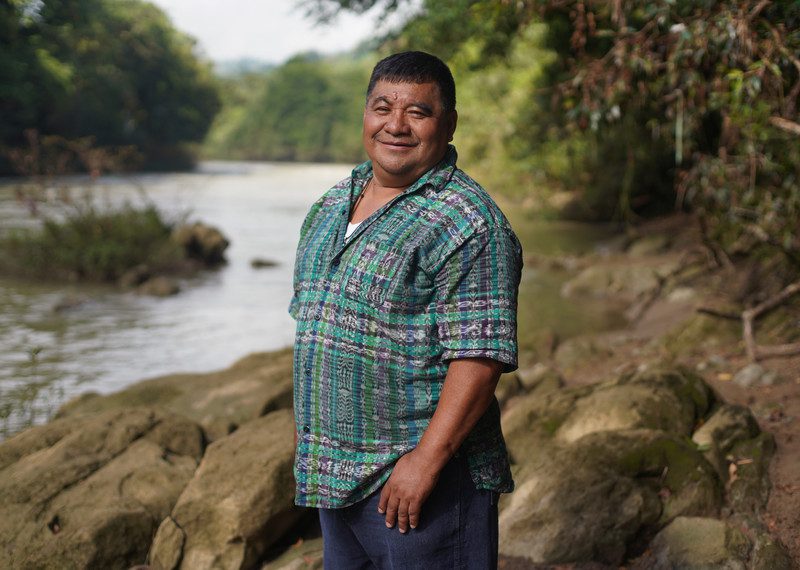
Double standards and inadequate responses have undermined human rights
In the Americas, states across the continent have failed their populations throughout the last year by making empty promises, applying double standards and failing to uphold their international human rights obligations, Amnesty International said today upon launching its annual report in the region. “Despite promising prosperity, security, social progress and environmental protection, governments in the Americas have turned their backs on women, refugees and other historically marginalized groups, while failing to adequately address the climate crisis and viciously repressing those who dare raise their voice against injustice and inequality. It is time for states to assume their responsibility for human rights and put an end to the injustices ravaging the region,” said Erika Guevara-Rosas, Americas director at Amnesty International.
It is time for states to assume their responsibility for human rights and put an end to the injustices ravaging the region.
Erika Guevara-Rosas, Americas Director, Amnesty International
Americas: key facts
Ruthless repression of dissent
In response to growing threats to the right to protest, Amnesty International launched a global campaign in 2022 to confront states’ intensifying efforts to erode the fundamental right to freedom of peaceful assembly.
Across the Americas millions of people, alongside social movements and activists, took to the streets to demand basic economic and social rights, an end to gender-based violence, the release of those unjustly detained and to defend the environment. Authorities in many countries responded by violating people’s rights to life, liberty, fair trial and physical integrity.
Excessive use of force and unlawful killings by security forces were widespread throughout the region, often targeting low-income and racialized neighbourhoods. In Brazil, 84% of all people killed by police were Black, including 23 people killed in a raid in Rio de Janeiro in May. In the USA, more than 75 people were arrested in connection with protests after police shot Jayland Walker, a Black man, 46 times in Akron, Ohio, in June.
In Venezuela, according to the human rights organization COFAVIC, security forces carried out 488 alleged extrajudicial executions between January and September. Reports by the UN Fact-Finding Mission on Venezuela highlighted the manipulation of the judicial system to shield police and military officers responsible for previous violations from justice and identified chains of command that linked suspected perpetrators to Nicolás Maduro’s government. The Office of the Prosecutor of the International Criminal Court opened an investigation into alleged crimes against humanity in Venezuela, the first such investigation in the region.
In Peru, security forces used excessive and lethal force with racist bias against Indigenous people and campesinos to quell protests during the political crisis since the ousting of then-president Pedro Castillo in December. At least 49 people have died from state repression, 11 due to road blockades and one policeman and six soldiers have been killed, while hundreds have been injured since the crisis began.
Arbitrary detentions remained widespread across the region. Those held were often tortured or otherwise ill-treated and, in some cases, forcibly disappeared. Last March, authorities in El Salvador declared a state of emergency in response to a spike in homicides, allegedly committed by gangs. The measure has resulted in massive human rights violations, more than 65,000 arrests and widespread unfair trials.
In Nicaragua, as of last December authorities had revoked the legal status of at least 3,144 organizations, closed at least 12 universities, jailed journalists and harassed political activists and opponents. In February 2023, the government forcibly exiled 222 people, and stripped more than 300 of their nationality, including prominent human rights defenders, writers and journalists.
The defence of human rights remains a perilous pursuit across the region, with at least 189 social leaders and human rights defenders killed in Colombia alone last year. In Venezuela, there were at least 396 attacks against human rights defenders, including intimidation, stigmatization and threats last year, while in Guatemala, judges, prosecutors, human rights defenders and protesters faced unfounded criminal proceedings. Press freedom remained at risk as Mexico recorded its deadliest ever year for the press with at least 13 murders, while journalists were also killed in Colombia, Haiti and Venezuela.
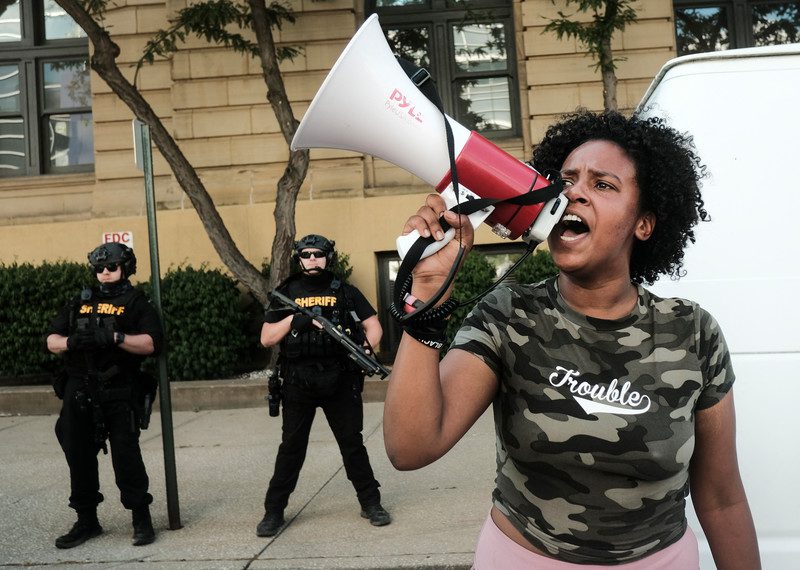
Shameless double standards fuel abuses against refugees
Human rights and humanitarian crises throughout the Americas led to sharp increases in the numbers of people leaving their country in search of protection. At least 7.17 million Venezuelans have now left their country, while the number of people leaving Cuba and Haiti has also increased significantly, adding to a steady number of people fleeing Central America. UNICEF recorded 5,000 children crossing the perilous Darién Gap between Colombia and Panama in the first half of 2022, twice the number from the same period in 2021.
Yet US federal courts upheld the Migrant Protection Protocols and Title 42 of the US Code, resulting in irreparable harm to tens of thousands of asylum seekers who were expelled to danger in Mexico. Meanwhile, Mexican authorities continued to collaborate with US authorities to stop others seeking safety in the United States, detaining at least 281,149 people in overcrowded immigration detention centres and deporting at least 98,299 people, mostly from Central America, including thousands of unaccompanied children.
The USA has been a vocal critic of Russian human rights violations in Ukraine has admitted tens of thousands of Ukrainians fleeing the war, yet under policies and practices rooted in anti-Black racism, it expelled more than 25,000 Haitians between September 2021 and May 2022, subjecting many to arbitrary detention and discriminatory and humiliating treatment that amounted to race-based torture.
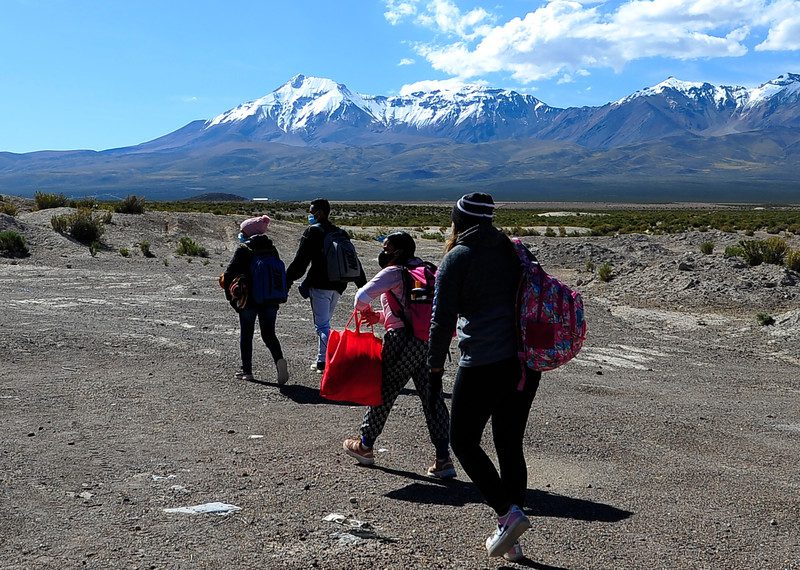
Women and LGBTQI+ people bear brunt as states fail to protect their rights
Women’s rights were under fire, as authorities in several countries took actions that seriously jeopardized sexual and reproductive rights. The US Supreme Court overturned a long-standing constitutional guarantee of right to abortion, threatening other human rights, including the rights to life, health, privacy, security and non-discrimination for millions of women, girls, and people who can become pregnant. By the end of 2022, several US states had passed laws to ban or curtail access to abortion.
El Salvador’s total ban on abortion remained in force, with at least two women still imprisoned on charges related to obstetric emergencies, including one serving a maximum 50-year sentence. In the Dominican Republic, Congress again failed to table a revised Criminal Code that decriminalizes abortion.
States’ hunger to control the bodies of women and girls, their sexuality and their lives leaves a terrible legacy of violence, oppression and stunted potential,
Agnès Callamard, Secretary General, Amnesty International
Authorities failed to protect women and girls from entrenched gender-based violence or to address impunity for these crimes. Indigenous women continued to face disproportionately high levels of rape and other sexual violence in the USA, while hundreds of femicides were recorded in countries such as Argentina, Mexico and Venezuela. Mexico’s government continued to stigmatize feminists who protested against government inaction on gender-based violence and, in some states, security forces violently beat and arbitrarily detained demonstrators.
“States’ hunger to control the bodies of women and girls, their sexuality and their lives leaves a terrible legacy of violence, oppression and stunted potential,” said Agnès Callamard.
Nonetheless, some advances were made on sexual and reproductive rights, as well as LGBTI people’s rights. In Colombia, the persistence of women’s rights activism and sophisticated legal action contributed to the Constitutional Court’s decision to decriminalize abortion during the first 24 weeks of pregnancy. The same court also recognized a non-binary gender marker for ID registration, establishing legal precedent for gender diversity in Colombia. Meanwhile, following a referendum, Cuba approved a new Family Code legalizing same-sex marriage and allowing same-sex couples to adopt.
However, LGBTI people continued to be at risk of killings, attacks, discrimination and threats and faced obstacles to legal recognition in several countries. Transgender people were at particular risk of killings in Brazil, Colombia, Guatemala, Honduras and Mexico. Brazil remained the world’s deadliest country for transgender people, despite two transgender women winning election to the federal congress for the first time in the nation’s history.
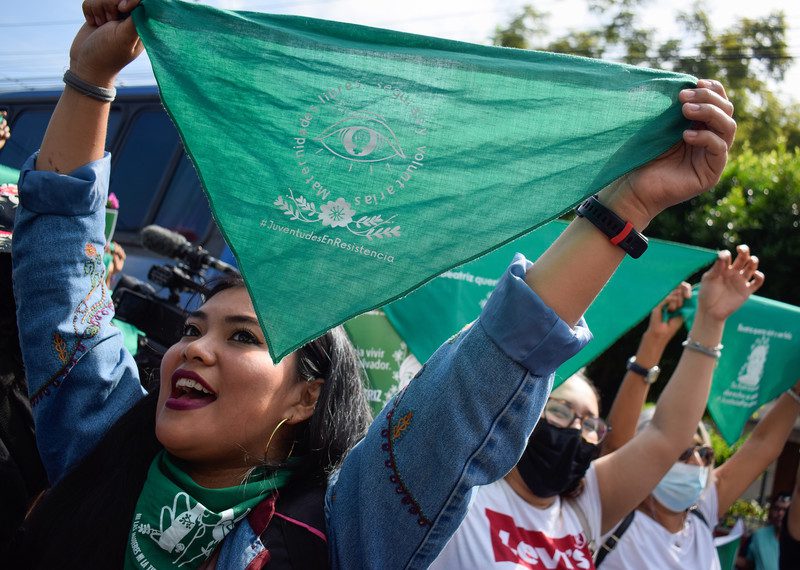
Regional action against threats to humanity woefully inadequate
The Americas continued to suffer the fall-out of the Covid-19 pandemic, while climate change and economic instability compounded the risks to human rights. Authorities across the region failed to guarantee millions of people’s access to basic rights to food, water and health and healthcare systems remained critically underfunded. Inflation compounded economic hardship, while the number of people living in poverty remained above pre-pandemic levels.
Most people in Venezuela experienced food insecurity and by August the country had the world’s third highest inflation rate for food prices. Food shortages in Cuba forced people to queue for hours for basic goods, while more that 40% of Haiti’s population faced crisis or emergency hunger levels, amid a re-emergence of cholera. More than half Brazil’s population also lacked adequate and secure access to food.
Most countries failed to strengthen protections to the right to health, despite the pandemic demonstrating that health systems needed major reform. In Chile a large majority of citizens rejected a proposal for a new constitution that would have strengthened protections for economic, social, cultural and environmental rights.
Against this backdrop, countries failed to act in the best interests of humanity and address fossil fuel dependency, the main driver behind the climate crisis that threatens life as we know it. Despite their rhetoric in support of global emissions reductions, many governments did not match these words with actions.
Although the US Congress passed the first package of climate change legislation in US history, it also reinstated old auctions of oil and gas leases on federal land and the Gulf of Mexico, which the Biden administration had tried to cancel, and forced the administration to hold several new auctions. Meanwhile, Canada’s Export Development agency had pumped $2.5 billion USD into the oil and gas sector midway through the year, even as Canada launched a plan to phase out public financing for new fossil fuel projects.
Despite the grave challenges facing us, people across the Americas have shown time and again that they have the power to affect change in the region
Erika Guevara-Rosas
Elsewhere, Brazil submitted a national climate mitigation plan insufficient in relation to the country’s contribution to climate change. However, after winning Brazil’s presidential election, Luiz Inácio Lula da Silva announced he would promote the protection of the country’s biomes with special emphasis on the Amazon, an area that Intergovernmental Panel on Climate Change reports have declared highly vulnerable to drought and high temperatures.
In Guatemala the Indigenous Mayan environmentalist Bernardo Caal Xol was released on parole after spending four years in jail on bogus charges. However, environmental activists and Indigenous peoples continue to face attacks for trying to address the climate crisis, with killings recorded in Brazil, Colombia, Ecuador and Mexico.
“Despite the grave challenges facing us, people across the Americas have shown time and again that they have the power to affect change in the region. From the Indigenous activists leading the defence of our planet to the brave people opposing racial injustice, and the women and girls standing up to reclaim control of their bodies, new generations of human rights defenders keep emerging to hold our governments to account,” said Erika Guevara-Rosas.
Response to deterioration of rights in the region exposes an international system unfit to deal with global crises
- Robust response to Ukrainian crisis in the West is in sharp contrast with a deplorable lack of meaningful action on plummeting rights in Afghanistan and intense crackdown on the right to protest in Sri Lanka, Pakistan, Bangladesh, Maldives, India and Nepal.
- Women’s rights and freedom to protest are threatened as states fail to protect and respect rights at home.
- As the Universal Declaration of Human Rights turns 75, Amnesty International insists that a rules-based international system must be founded on human rights and applied to everyone, everywhere.
The failure of global and regional institutions – hamstrung by the self-interest of their members – to respond adequately to global conflicts, climate change and global energy and food crises has disrupted an already weak multilateral system, Amnesty International said as it launched its annual assessment of human rights around the world.
Amnesty International Report 2022/23: The State of the World’s Human Rights found that double standards on human rights abuses taking place around the world fuelled impunity and instability, including deplorable lack of meaningful action on the plummeting human rights record in Afghanistan, inadequate responses to a spiralling economic crisis in Sri Lanka and the refusal to confront the crackdown on dissent and persecution of minorities in multiple South Asian countries.
As South Asia sits on the brink of a volatile and unpredictable future, it is important now, more than ever, to keep rights squarely in the centre of all negotiations and conversations.
Deprose Muchena, Senior Director, Amnesty International
“The Universal Declaration of Human Rights was created 75 years ago, recognizing the inalienable rights and fundamental freedoms of all people. Global economic dynamics and shifting power structures are unleashing chaos in which it is easy to lose sight of human rights. As South Asia sits on the brink of a volatile and unpredictable future, it is important now, more than ever, to keep rights squarely in the centre of all negotiations and conversations,” said Deprose Muchena, Senior Director at Amnesty International.
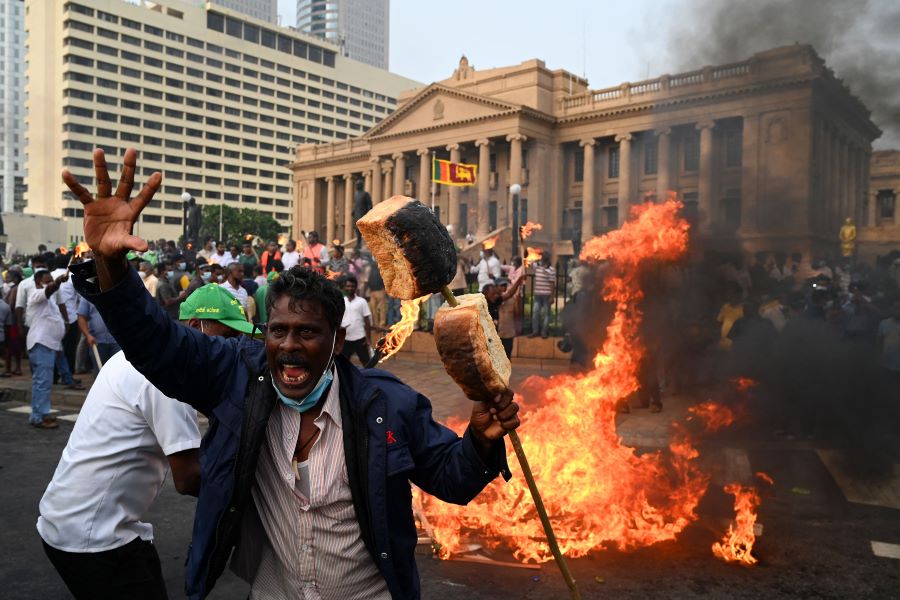
Ruthless repression of dissent
People took to the streets across the region to protest against injustice, deprivation and discrimination, but in most countries including Afghanistan, Bangladesh, India, Nepal, Maldives, Pakistan and Sri Lanka they were met with intense crackdowns and excessive, sometimes lethal, force.
In Sri Lanka, emergency powers were used to curtail mass protests. The police used live ammunition, tear gas and water cannon against largely peaceful crowds protesting against the spiralling economic crisis, causing deaths and injuries. Protesters in Sri Lanka were arrested, arbitrarily detained and charged with terror-related and other offences.
They only criticize human rights violations when it aligns with their global and regional politics but are mute spectators to similar abuses at their own doorstep just because their interests are at stake.
Yamini Mishra, Regional Director for South Asia, Amnesty International
In Afghanistan, peaceful protesters faced arbitrary arrests, torture and enforced disappearance. Police in Bangladesh used live and rubber bullets, sound grenades and tear gas to disperse protests by students and workers. In Pakistan, authorities forcibly broke up peaceful protests by activists and family members of victims of enforced disappearances. Protesting victims of loan sharks in Nepal were met with police baton charges and arbitrarily detained. In India, a 15-year-old boy and another protester were shot and killed by police during demonstrations in Jharkhand state.
Attacks on press freedom persisted in multiple countries. In Afghanistan, journalists faced arbitrary arrest and detention as well as torture and other ill-treatment for reporting that was critical of the Taliban. In Bangladesh, where journalists experienced physical assaults, judicial harassment and other reprisals for their reporting, a draft data protection law threatened to further curtail freedom of expression. Media workers in Pakistan also came under increased pressure as journalists and others were arrested on spurious charges.
The Indian government likewise tried to prevent the human rights situation there from being discussed abroad by imposing international travel bans on human rights defenders and detention without trial. It also used money laundering laws and other pretexts to harass media organizations and NGOs. In Nepal, comedians were among those who faced prison sentences in relation to their performances. The Maldives parliament passed a law that could force journalists to reveal their sources. Encouragingly, the Maldives government was considering amending the law, but faced strong criticism.
“South Asian countries seem to apply human rights law on a selective basis in a staggering show of blatant hypocrisy and double standards. They only criticize human rights violations when it aligns with their global and regional politics but are mute spectators to similar abuses at their own doorstep just because their interests are at stake. It is unconscionable and undermines the entire fabric of universal human rights,” said Yamini Mishra, Regional Director for South Asia at Amnesty International.
In response to growing threats to the right to protest, Amnesty International launched a global campaign in 2022 to confront states’ intensifying efforts to erode the fundamental right to freedom of peaceful assembly.
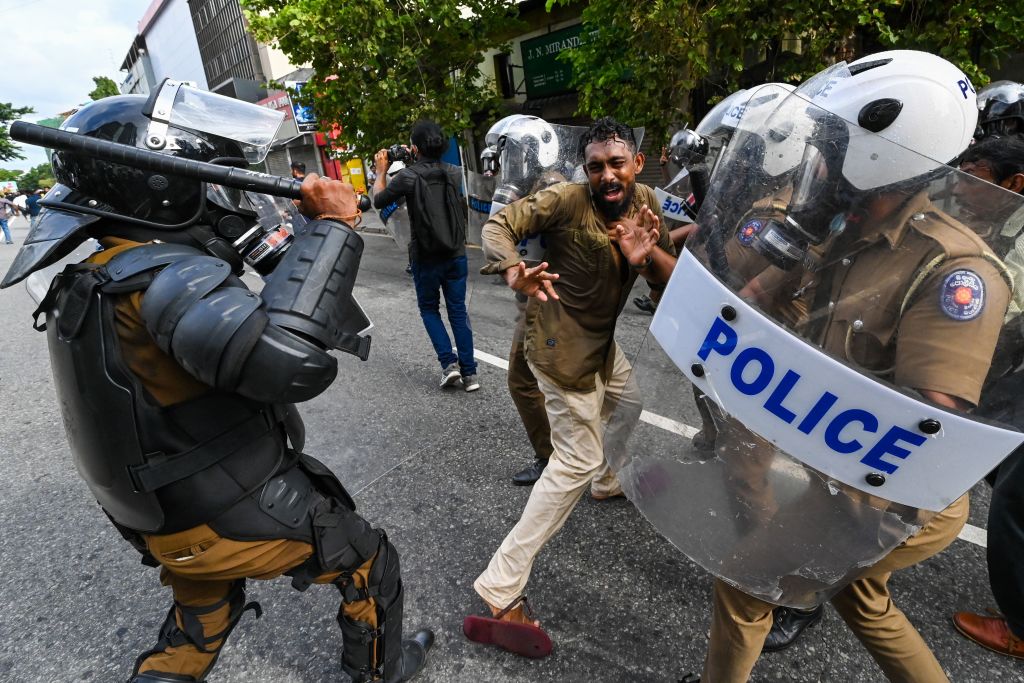
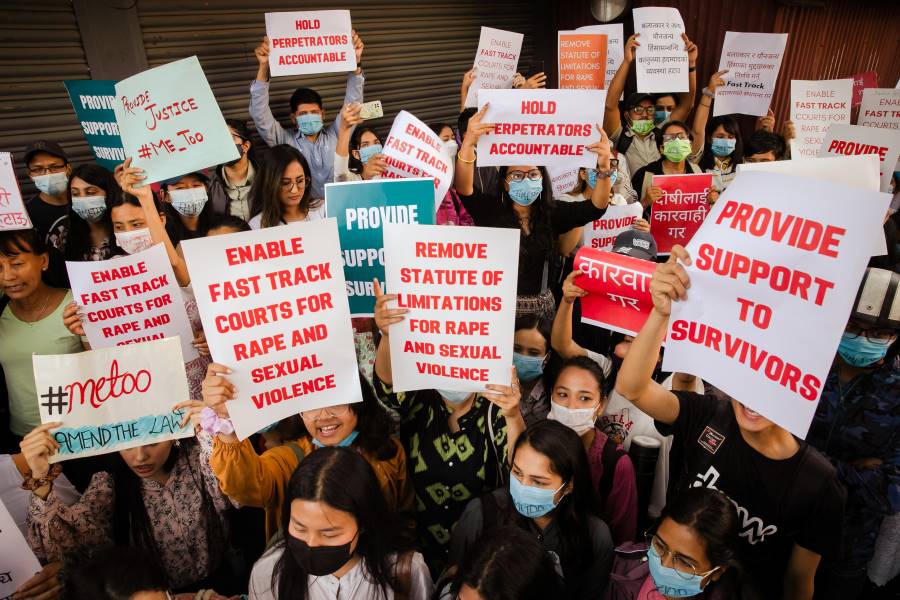
Women bear the brunt as states fail to protect and respect rights
In India the Supreme Court passed two progressive judgments upholding the right to dignity of sex workers and interpreting an existing law to expand abortion access to all women, notwithstanding their marital status.
Nevertheless, the reality for many women and girls in the region remained one of systemic discrimination.
In Afghanistan, women and girls were effectively erased from public life and spaces as new edicts further restricted their rights and freedoms which, in addition to banning them from working with NGOs, forbade them from travelling without a male chaperone, attending secondary school and university or going to public parks, among other restrictions.
In Nepal, women continued to be denied equal citizenship rights and, although the statute of limitations for rape was extended, the excessively short period for filing complaints remained a significant barrier to effective remedy for survivors.
Violence against women also remained prevalent in the region. There were calls on the Maldivian authorities by UN experts to address rising gender-based violence there. In Bangladesh, hundreds of incidents of rape or murder of women by their husbands or other family members were recorded and impunity for such crimes remained widespread. In Pakistan, several high-profile murders of women by their partners or family members were reported, yet the National Assembly failed to adopt legislation on domestic violence, pending since 2021. In India, violence against Dalit and Adivasi women, among other caste-based hate crimes, was committed with impunity. Girls were also banned from wearing the hijab in public schools in Karnataka.
“Women have been at the forefront of protests in the region, often challenging patriarchal control over their bodies, lives, choices and sexuality on behalf of the state, society and family. The failure of States and institutions to uphold gender justice leaves a terrible legacy of suppression, violence and stunted potential,” said Yamini Mishra.
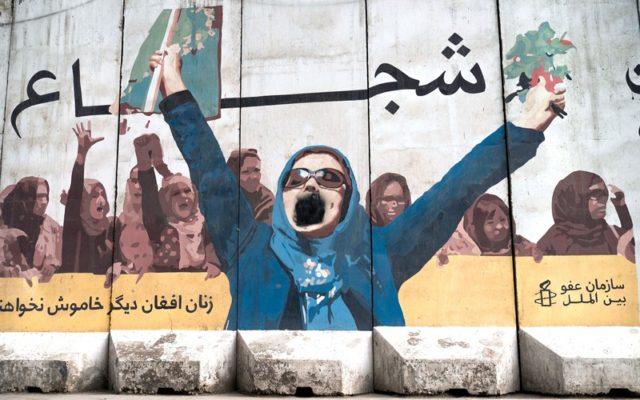
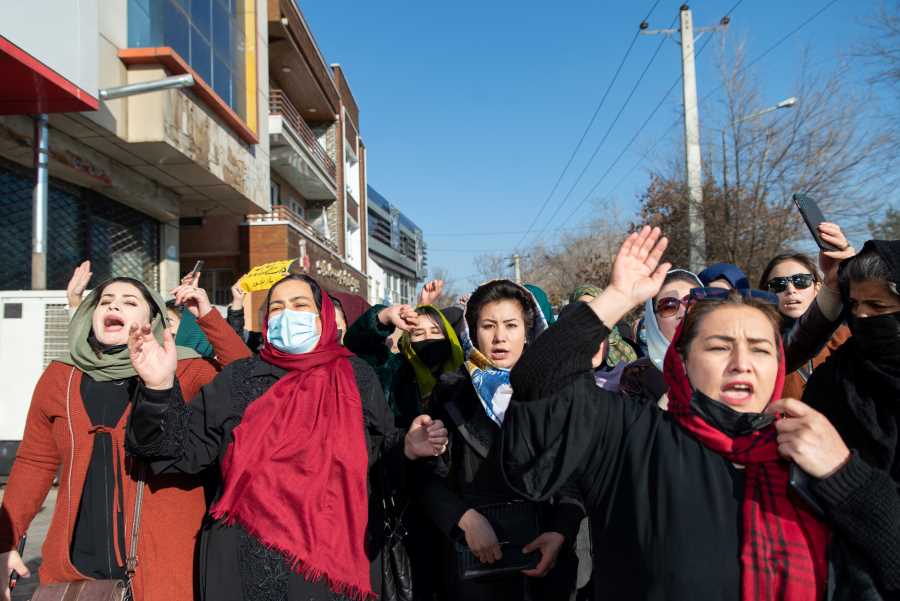
Global action against threats to humanity woefully inadequate
Economic crises fuelled by pandemic-related recession, economic mismanagement and climate change induced disasters within and beyond the region severely affected economic and social rights, including in Afghanistan and Sri Lanka, where food, healthcare and an adequate standard of living became increasingly inaccessible.
In Afghanistan, the spiralling economic crisis plunged 97% of the population into poverty, while in Sri Lanka, inflation exceeded 73% in September 2022 with the poorest and most marginalized suffering the greatest consequences.
We stand no chance of surviving these crises if our national and international institutions aren’t fit for purpose.
Yamini Mishra, Regional Director for South Asia, Amnesty International
The devastating costs of the unchecked climate crisis were made abundantly clear in 2022. Specifically in Pakistan where heatwaves, droughts and then devastating floods had a catastrophic impact on lives and livelihoods of nearly 750,000 people. Against this backdrop, it was particularly disappointing to note that the global community failed to act in the best interests of humanity and address fossil fuel dependency, the main driver pushing us toward the biggest threat to life as we know it. This collective failure was another stark example of the weakness of current multilateral systems.
“South Asia is besieged by an onslaught of intersecting and interconnected crises including ‘man-made’ crises – with at least three countries in the region in the middle of an economic crisis and burdened with high debts – and natural crises, with South Asia often being ground zero for extreme heatwaves to destructive widespread floods. We stand no chance of surviving these crises if our national and international institutions aren’t fit for purpose,” said Yamini Mishra.
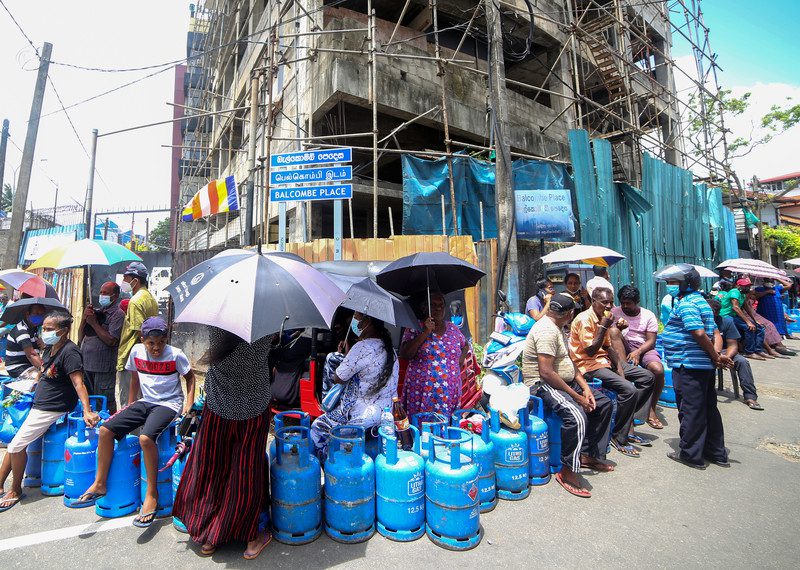
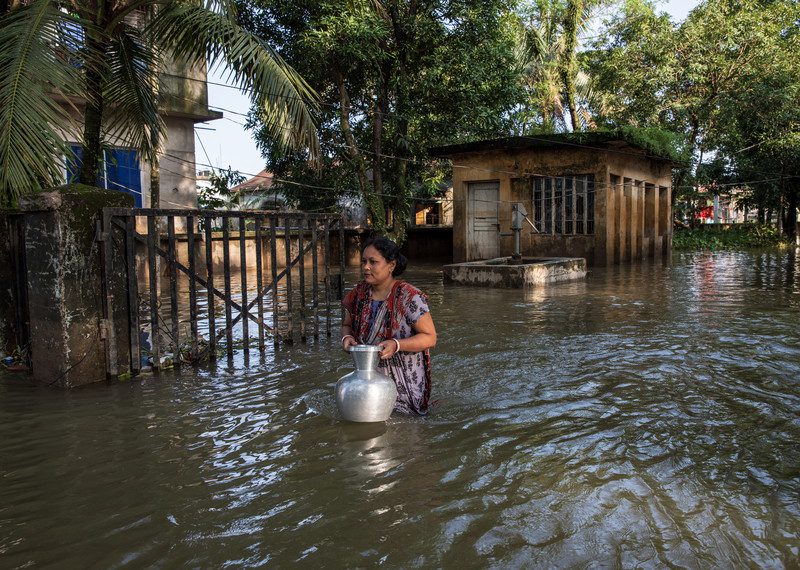
Dysfunctional international institutions need fixing
In Afghanistan, the space for independent human rights monitoring and reporting had all but disappeared. War crimes were also committed as the Taliban continued its campaign of reprisal killings against members of the former administration and security forces or those who oppose them. The Taliban’s version of a justice system lacked any credibility while the resumption of executions in Afghanistan represented a major regression. In India, authorities unlawfully demolished mainly Muslim-owned property in several states, raising concerns that this was a form of collective punishment for alleged involvement in intercommunal clashes. In Nepal, efforts toward securing truth, justice and reparation for crimes under international law and other human rights violations committed during the 1996-2006 conflict remained grossly inadequate.
Refugees and asylum seekers remained highly marginalized and at risk of refoulement. Ensuring the human rights of Rohingya refugees inside one of the world’s largest refugee camps continued to pose a major challenge for Bangladesh. While there was some improvement in access to education for Rohingya children, an estimated 100,000 remained out of school. Despite concerns from the international community and human rights groups, the Bangladeshi government persisted in its plans to relocate Rohingya refugees to the remote and flood-prone Bhasan Char island bringing the total number to 30,079 according to official figures.
Afghans fleeing persecution at home faced pushbacks from neighbouring countries, such as Iran, and other countries along the route, such as Turkey.
Impunity was compounded by the inability of the UN Human Rights Council to effectively address many of these serious concerns. It is vital that international institutions and systems that are meant to protect our rights are strengthened rather than undermined.
Amnesty International is also calling for the UN’s key decision-making body, the Security Council, to be reformed to give a voice to countries and situations which have been traditionally ignored, especially in the global south.
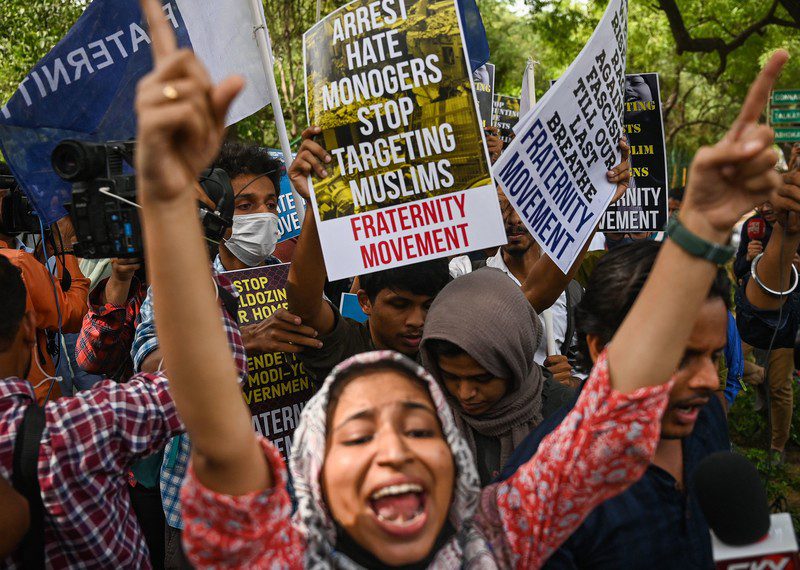
Shameless double standards pave way for further abuse
The Russia-Ukraine war diverted resources and attention away from the climate crisis, other long-standing conflicts and human suffering the world over and in South Asia in particular. The West’s double standards only embolden and enable countries to evade, ignore and deflect criticism of their human rights record.
The double standards of wealthy nations are as evident in their sickening COVID -19 vaccine nationalism as it is in their large contribution to climate change.
Deprose Muchena, Senior Director, Amnesty International
“There is no denying that an effective and consistently applied rules-based international order is the need of the hour. The Russian war of aggression in Ukraine demonstrated that some of the richest countries in the world were more than capable of receiving large numbers of people seeking safety and giving them access to health, education and accommodation. However, the West did not offer the same treatment to the Afghans and Rohingyas escaping war and repression. This shameless double standard must be challenged and countries must step up their efforts for a renewed rules-based order,” said Deprose Muchena.
“The double standards of wealthy nations are as evident in their sickening COVID -19 vaccine nationalism as it is in their large contribution to climate change. As South Asia increasingly becomes ground zero for many climate emergencies, it further highlights the need for reparations for loss and damage in these nations with greater investment in global reduction in dependency on fossil fuels. We also need countries, including in South Asia, that have so far failed to take a stand against human rights abuses in the world to speak up now before it is too late for everyone, everywhere.”
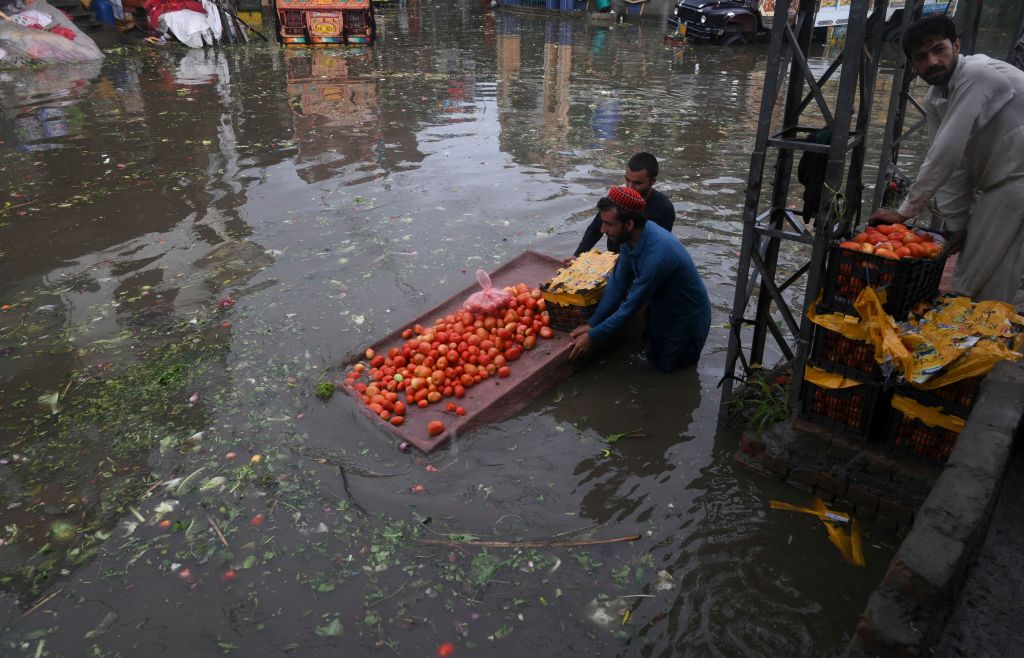
Response to Russian invasion of Ukraine exposes an international system unfit to deal with global crises
Russia’s full-scale invasion of Ukraine in 2022 unleashed numerous war crimes, generated a global energy and food crisis and further disrupted a weak multilateral system. It also laid bare the hypocrisy of European countries, which reacted forcefully to the Kremlin’s aggression but condoned or were complicit in grave violations committed elsewhere. Commendably, they immediately put in place legal protections for Ukrainian refugees fleeing war, whilst simultaneously blocking others fleeing conflict and repression in the Middle East and sub-Saharan Africa, Amnesty International said as it launched Amnesty International Report 2022/23: The State of the World’s Human Rights.
“2022 will be remembered as the year that Russia led a full-scale military invasion of Ukraine, committing war crimes and potential crimes against humanity, causing repercussions around the world including the biggest movement of refugees in Europe since World War II,” said Nils Muižnieks, Amnesty International’s Europe Director.
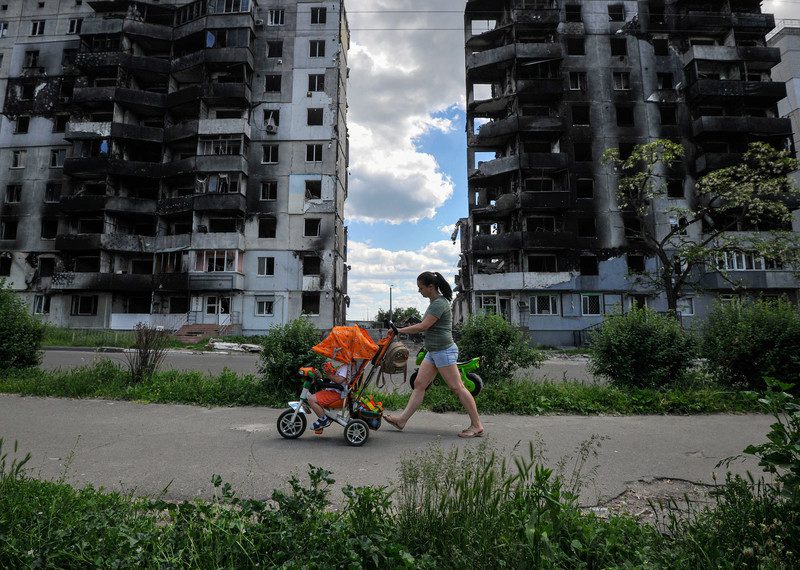
Shameless double standards and racism
Within days of the Russian invasion of Ukraine, the EU activated the ‘Temporary Protection Directive’ (TPD) for the first time, providing immediate protection to displaced Ukrainians and some others fleeing Russian aggression. In doing so it demonstrated that, as one of the richest blocs in the world, it is more than capable of receiving large numbers of people seeking safety and providing them with quick access to accommodation, the labour market, and education. Amnesty International has previously called for the TPD to be applied when other groups of people seeking safety came to Europe.
However, people arriving at Europe’s borders seeking protection, and in particular racialized people who fled Afghanistan, Syria and sub-Saharan Africa, continued to face racism, be subjected to torture and other ill-treatment and violent rejection at the borders. Their protection needs or individual circumstances were often not even examined. In June, 37 sub-Saharan African people were killed and 77 others remain missing following the deadly actions of Spanish and Moroccan security officials on the border of Spain’s Melilla exclave.
Zacharias , 22, from Chad, told Amnesty International: “Moroccan and Spanish security forces were throwing everything at us, gas bombs, stones, rubber bullets, rubber balls…We couldn’t see anything and it was difficult to breathe.”
Thousands of people were summarily returned from Bulgaria and Greece to Türkiye; from Türkiye to Iran and Syria; from Cyprus to Lebanon; from Croatia to Bosnia and Herzegovina; from Hungary to Serbia; and from Latvia, Lithuania and Poland to Belarus. Those who managed to reach EU territory were arbitrarily detained, including for long periods, or unlawfully returned, often violently. After crossing the borders into Lithuania, Latvia and Poland, they were again subjected to torture and other ill treatment.
Instead of racism, violence, arbitrary detention, unlawful pushbacks, there must be compassion and compliance with international law.
Nils Muižnieks, Europe Director, Amnesty International
People attempting to reach European shores by boat are often intercepted by the EU-funded Libyan Coast Guard and brought back to Libya, only to be systematically subjected to prolonged arbitrary detention in appalling conditions and exposed to torture including sexual violence, arbitrary killings, enforced disappearances, forced labour and exploitation. NGOs operating rescue vessels in the Mediterranean were criminalized by authorities and their activities were hindered in various ways, including through delays in disembarkation or instructions to disembark in ports far away from where they had rescued people.
“European nations have demonstrated that they know what they must do in response to people seeking international protection and, crucially, that they can do it. Instead of racism, violence, arbitrary detention, unlawful pushbacks, there must be compassion and compliance with international law. Instead of fortifying borders, authorities must open safe and legal routes for people seeking safety in Europe,” said Nils Muižnieks Amnesty International’s Europe Director.
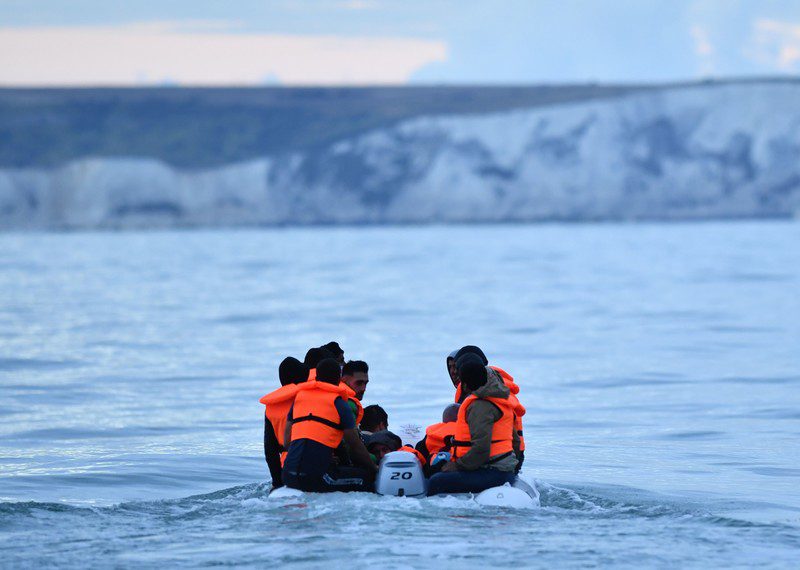
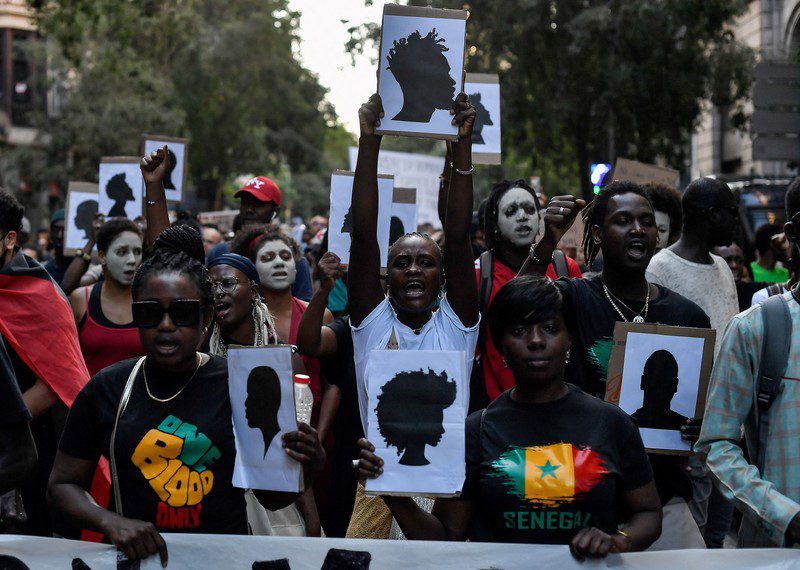
Ruthless repression of dissent
Several countries in the region imposed arbitrary or disproportionate bans on protests. In Republika Srpska in Bosnia and Herzegovina, authorities banned protests commemorating wartime persecution, while Türkiye banned Pride marches and commemorations of victims of enforced disappearances. Authorities resorted to other restrictive measures, such as preventive detention (Sweden), excessive use of force (Serbia), severe fines (Slovenia), arbitrary arrests (Greece) and unfair dismissals of protest participants (Hungary). Many governments sought to punish acts of civil disobedience, especially by environmental protesters.
Türkiye and France restricted freedom of association by seeking to sanction or dissolve various associations – in Türkiye, this affected a women’s rights platform, a community group and one of the main opposition parties; in France, an anti-fascist group, pro-Palestinian groups, and an environmental rights collective. Türkiye pursued baseless prosecutions against a number of human rights defenders (HRDs). Türkiye, Greece and Italy targeted HRDs working on migrants’ and refugees’ rights. Poland and Andorra targeted prominent women’s rights defenders working on sexual and reproductive health and rights.
Technology was weaponized to silence and snoop on critics. Spyware was used to target journalists and opposition politicians in Spain, Poland and Greece. In Serbia, the government sought to introduce legislation facilitating biometric surveillance and data processing. In Switzerland and Ireland, NGOs raised concerns about draft legislation that would expand the powers of intelligence services in the former, and introduce facial recognition technology in law enforcement in the latter. Türkiye’s Parliament passed a new disinformation law enhancing government powers over social media.
In the Western Balkans, authorities pressured, harassed and threatened journalists, especially those reporting on organized crime, corruption and war crimes. Strategic Litigation against Public Participation (SLAPPs), abusive lawsuits that targeted journalists and environmental activists, were increasingly common. The use of SLAPPs was concerning in Austria, Bosnia and Herzegovina, Bulgaria and Greece, and also frighteningly common in Croatia, Serbia and Slovenia.
Women bear brunt as states fail to protect rights at home
The rights of women saw both progress and setbacks. A court judgement from 2020 continued to severely limit access to abortion in Poland and in 2022 an activist was prosecuted for helping a woman to access to abortion pills.
However, the Netherlands, Germany and Spain began removing some restrictions on accessing abortion and Malta began to discuss the possibility of termination if the woman’s life and health are at risk.
While levels of violence against women remained high across the region, Belgium, Finland and Spain moved towards reforming rape laws and enshrining the principle of consent. Ukraine and the UK ratified the Council of Europe Convention on Preventing and Combating Violence against Women and Domestic Violence (Istanbul Convention), while the European Commission discussed a new directive on the same topic.
Racism and discrimination on the rise
A number of countries, such as Germany and the UK, saw reports of antisemitic hate crimes reach record levels. Several countries, such as Andorra and France, reinforced or passed new measures targeting Muslim women. Monitors in Belgium, Switzerland, the UK and Germany found evidence of structural racism against Black people and people of African descent. Roma faced derogatory speech in many countries and systemic discrimination through segregation in education in Albania, Croatia, Kosovo, North Macedonia and Slovakia.
Discrimination and violence against LGBTI people in some countries was accompanied by judicial or legislative progress in others. In Slovakia, a man who killed two LGBTI people and then himself was found to have posted an anti-LGBTI and antisemitic manifesto on Twitter before the attack. LGBTI leaders in Montenegro, North Macedonia and Poland suffered attacks and/or threats. Courts in Croatia, Slovenia and Latvia upheld equality for LGBTI persons on issues such as adoption, gay marriage and the recognition of same sex couples, respectively. Spain passed a landmark trans recognition law. In contrast, the government in Hungary organized a referendum based on a 2021 anti-LGBTI law, while activists in Poland faced SLAPP suits and arbitrary detention.
Global action against threats to humanity woefully inadequate
The climate crisis was brought home to many by unprecedented summer heatwaves, with temperatures exceeding 40˚C in some places for the first time ever.
The war in Ukraine and the effects on energy supply and pricing should make political leaders accelerate the just transition even faster, instead of turning to more fossil fuels, which further threaten our health and right to life.
Nils Muižnieks, Europe Director, Amnesty International
The urgency of taking climate action was undermined by the effects of Russia’s war in Ukraine. The need to reduce dependence on Russian oil and gas led to a scramble to ensure alternative sources of fossil fuels, decisions to extend the life of coal and nuclear plants, and temporary reductions in fuel taxes.
“Climate change is one of the biggest threats to our human rights. The war in Ukraine and the effects on energy supply and pricing should make political leaders accelerate the just transition even faster, instead of turning to more fossil fuels, which further threaten our health and right to life,” said Nils Muižnieks.
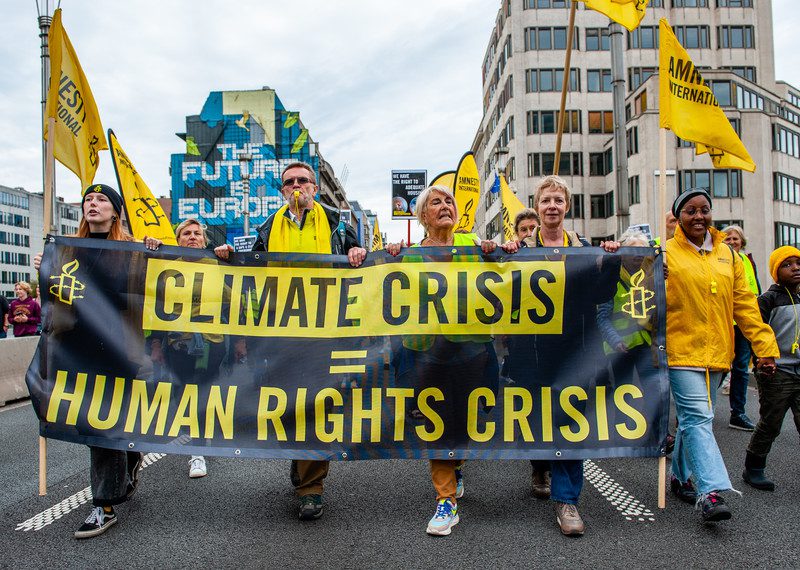
Scourge of conflict continues to cause suffering amid double standards and failure of leadership
Russia’s full-scale invasion of Ukraine in 2022 generated a global energy and food crisis, which hit Africa hard, and sought to further disrupt weak multilateral and regional systems meant to protect human rights on the continent. It also laid bare the inconsistent responses of crises around the world. While Western states as well as some African states reacted forcefully to the Kremlin’s aggression in Ukraine, they were muted in response to grave violations being committed in African countries including Burkina Faso, Central African Republic, Democratic Republic of Congo, Ethiopia, Mali and Mozambique, Amnesty International said as it launched its annual assessment of human rights around the world.
Amnesty International Report 2022/23: The State of the World’s Human Rights found double standards and inadequate responses to human rights abuses fuelled impunity and instability. It also showed that recovery efforts from the Covid-19 pandemic were hindered by conflicts, economic shocks arising from Russia’s invasion of Ukraine, and extreme weather conditions, exacerbated by climate change. Consequently, the rights of millions of people to food, health and an adequate standard of living were seriously undermined across the African continent.
While the international community’s attention shifted to Ukraine, Africa continued to suffer from the scourge of conflict, which continued to cause suffering and mass displacements of people.
Samira Daoud, Director for West and Central Africa, Amnesty International
The report also highlights the failure of global and regional institutions, including the UN Security Council and African Union, to respond adequately to crimes committed under international law in countries like China, Myanmar and Yemen, as well as on the African continent, including in Ethiopia, Burkina Faso and South Sudan.
“While the international community’s attention shifted to Ukraine, Africa continued to suffer from the scourge of conflict, which continued to cause suffering and mass displacements of people in countries such as Burkina Faso, Cameroon, Central African Republic, Ethiopia, Mali, Mozambique and South Sudan,” said Samira Daoud, Amnesty International’s Director for West and Central Africa.
“Africa was already facing a long, slow recovery from Covid-19 but the ongoing Russian war in Ukraine has resulted in a spike in global oil prices, which has driven the cost of commodities higher, making it difficult for ordinary people to afford food and basic necessities. Many people are barely surviving in fragile economies such as Zimbabwe, Liberia and South Sudan and this has compromised people’s socio-economic rights.”
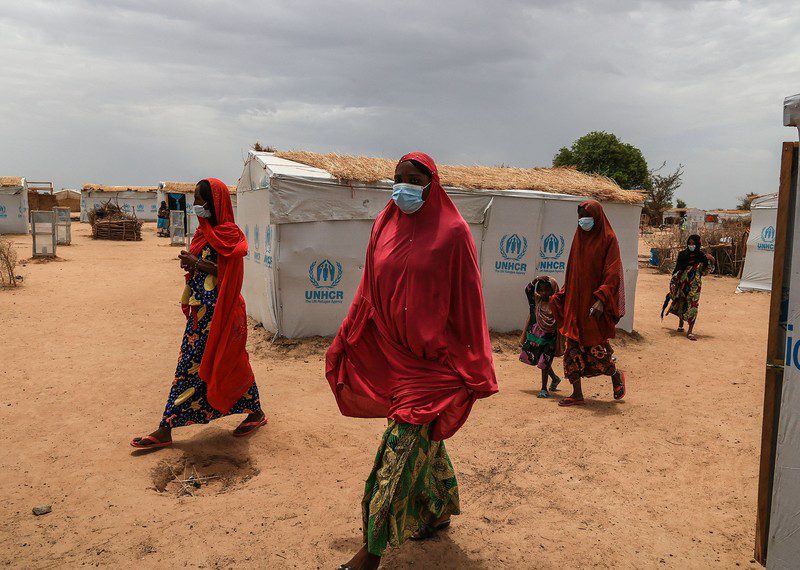
Shameless failure of leadership paves way for further abuses
Russia’s full-scale invasion of Ukraine triggered one of Europe’s worst humanitarian and human rights emergencies in recent history, exposing what has been a reality for many in the Democratic Republic of Congo, Central African Republic, South Sudan, Mozambique, and the Sahel, and the terrible failure of leadership to resolve these conflicts.
Despite widespread conflict across West, Central, East and Southern Africa, limited progress was made towards ensuring victims’ rights to truth, justice, reparation and accountability for grave violations and abuses of human rights that may amount to crimes under international law.
In 2022, the African Union celebrated the 20th anniversary of its founding and establishment. It was a year in which the continental body was expected to double down on its responses to crises and the fight against impunity; to rededicate itself to its ambitious goal of ‘silencing the guns’ and ridding the continent of the scourge of conflict by 2030. Instead, the African Union’s response to grave violations and abuses of human rights committed in conflicts across the region was either absent or timid at best.
In South Sudan, victims of crimes under international law continued to wait, for the seventh year in a row, for the African Union to decisively act and establish the Hybrid Court for South Sudan. 2022 marked seven years since a peace agreement mandated the African Union to establish the Hybrid Court for South Sudan and nine years since the country descended into conflict.
In Ethiopia, the African Union successfully mediated the signing of a peace agreement in response to the two-year brutal conflict in the northern region. However, it remained eerily silent as the Ethiopian government continued to discredit and deny access to the African Commission on Human and Peoples’ Rights Commission of Inquiry on the Situation in the Tigray Region. At the same time, the peace agreement mediated by the African Union overlooked rampant impunity in the country and failed to offer a clear roadmap on how to ensure accountability for war crimes and crimes against humanity.
While the African Union mediation efforts resulted in cessation of hostilities agreements in countries such as Ethiopia, many other conflicts continued largely unabated. Emboldened by a lack of attention or decisive action from the African Union and the United Nations, armed groups and government forces alike continued to target civilians in conflicts around the continent, leaving a trail of death and destruction.
In Burkina Faso, armed groups, the Islamic State in the Sahel (ISS) and the Group for the Support of Islam and Muslims (GSIM), targeted towns and cities, killing people in attacks and violating humanitarian law. In Djibo town, more than 300,000 residents were affected when GSIM destroyed water infrastructure. At least 80 people, mostly civilians, were killed when ISS fighters attacked Seytenga town in June 2022, reportedly going from house to house killing men.
In Mali, members of the GSIM attacked three villages in Bankass Cercle, killing at least 130 people in May 2022. In Moura town, several dozen people were summarily executed by Malian soldiers and their allies in March. The same forces killed 50 civilians in Hombori in April 2022.
In Cameroon, armed separatist groups in the North-west and South-west regions targeted people, healthcare facilities and schools. Armed groups in the Far North region similarly raided villages, killing and abducting dozens of civilians. In the Central African Republic, at least 100 civilians were killed by armed groups and government forces between February and March 2022.
Attacks on civilians also intensified in eastern parts of the Democratic Republic of the Congo (DRC) where armed groups killed more than 1,800 civilians. In Nord-Kivu, fighting between the Congolese army and M23 rebels forced more than 200,000 people to flee their homes. Data collected by the UN showed that at least 250 internally displaced people were killed during the year as a result of deliberate attacks against their camps in the east, with 180 killed in Ituri alone.
Both state and non-state actors cannot continue to violate human rights and international humanitarian law with impunity.
Tigere Chagutah, Director for East and Southern Africa, Amnesty International
In Mozambique, an armed group calling itself Al-Shabaab committed war crimes by beheading civilians, abducting women and girls, and looting and burning villages in the north of the country. On 21 May 2022, they attacked Chicomo, Nguida and Nova Zambezia villages in Macomia district and burned houses, ransacked crops, beheaded 10 people and abducted women and girls.
“Longstanding impunity for human rights violations from Burkina Faso to Central African Republic, Ethiopia to Sudan and Mozambique to Cameroon has added fuel to the fire of conflicts and human rights violations in Africa. Both state and non-state actors cannot continue to violate human rights and international humanitarian law with impunity. There must be consequences for human rights violations,” said Tigere Chagutah, Amnesty International’s Director for East and Southern Africa.
“Parties to armed conflicts must protect civilians by ending deliberate attacks on civilians and civilian infrastructure, and indiscriminate attacks. They must also facilitate the safe and unhindered access to humanitarian assistance for populations at risk.”
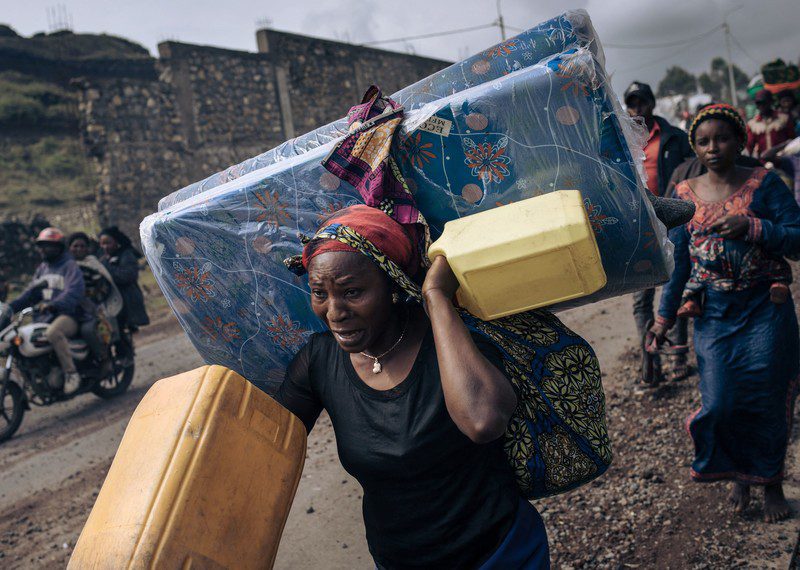
Ruthless repression of dissent across the world
In 2022, authorities across the world deployed various tactics to silence peaceful dissent. In Africa, journalists, human rights defenders and political opposition also faced repression including in Cameroon, Ethiopia, Eswatini, Guinea, Mali, Mozambique, Senegal and Zimbabwe.
Crackdowns on the right to freedom of peaceful assembly intensified as authorities used national security or Covid-19 as a pretext to ban, suppress or violently disperse protests. In Guinea, judicial proceedings have been launched against activists for protesting against transitional authorities, which have imposed a total ban on demonstrations since May.
The deaths of scores of protesters were reported and attributed to excessive use of force by security forces in Chad, DRC, Guinea, Kenya, Nigeria, Senegal, Sierra Leone, Somalia and Sudan, among other countries.
In many countries, political opponents, activists, bloggers, journalists and human rights defenders were or remained arbitrarily detained in 2022 simply for exercising their freedom of expression. In Cameroon, more than 100 people from the Anglophone regions or supporters of the main opposition party are detained for expressing their opinion. In Zimbabwe, senior opposition leader Job Sikhala remains in detention after he was arrested in June 2022, even though he has not been convicted of any crime.
Media outlets were suspended or subjected to heavy fines, including in Mali, Togo and Senegal for disseminating or publishing information critical of the regimes.
Technology was weaponized against many, to silence, prevent public assembly or disinform.
In response to growing threats to the right to protest, Amnesty International launched a global campaign in 2022 to confront states’ intensifying efforts to erode the fundamental right to freedom of peaceful assembly. As part of this campaign the organization calls for the adoption of a Torture-Free Trade Treaty banning the production and trade in inherently abusive law enforcement equipment and controlling the trade in law enforcement equipment often used for torture or other ill-treatment.
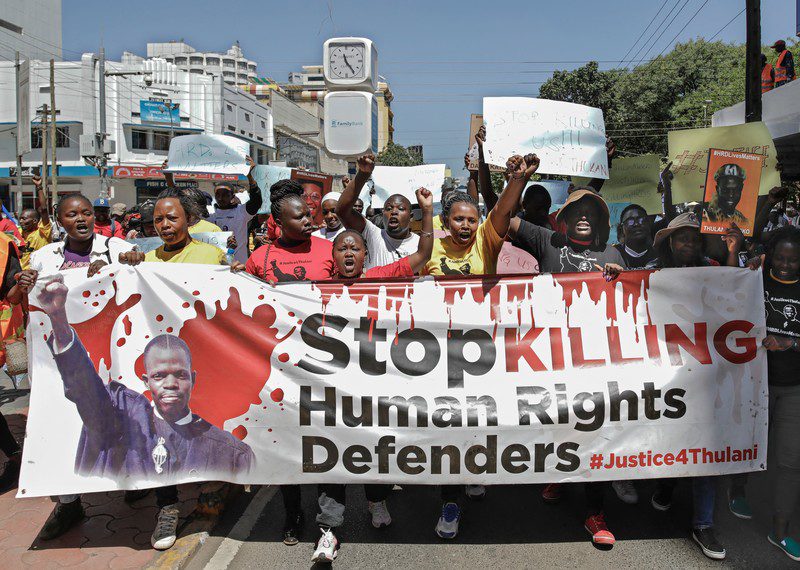
Women bear brunt as states fail to protect and respect rights
Repression of dissent and inconsistent approaches to human rights also had a stark impact on women’s rights.
Pregnant girls continued to be excluded from schools in Tanzania and Equatorial Guinea. Gender-based violence remained prevalent across the region. In South Africa, murders of women increased by 10.3%, with 989 women killed between July and September 2022, while sexual offences and rape increased by 11% and 10.8%, respectively.
In many countries including Guinea, victims of rape continued to experience failures in prevention of and a lack of protection from such crimes. They often suffered from poor access to medical care, sexual and reproductive health services, psychological support, and legal and social support.
But there were some positive developments as well. The African Committee of Experts on the Rights and Welfare of the Child found that Tanzania’s exclusion policy against pregnant girls in schools violated the African Charter on the Rights and Welfare of the Child and recommended that the policy be reviewed.
In Zimbabwe, legislation outlawing early and child marriage was introduced.
In Sierra Leone, 800 children, including pregnant girls and girls who had dropped out of school because of pregnancy were reintegrated into schools.
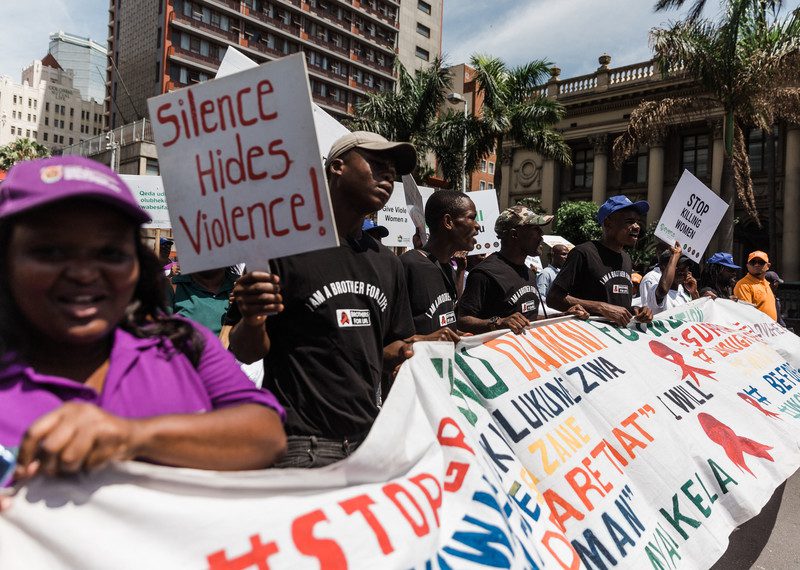
Global action against threats to humanity woefully inadequate
The Russian invasion of Ukraine interrupted wheat supplies that many African countries depend on. Rising fuel costs, another consequence of the war in Europe, caused considerable spikes in food prices which hit the most marginalized groups the hardest.
Food insecurity worsened due to conflict and drought in several African countries, leaving many people facing acute hunger including in Angola, Burkina Faso, CAR, Chad, Kenya, Madagascar, Niger, Somalia, South Sudan and Sudan. In Angola, food insecurity in the Cunene, Huíla and Namibe provinces was among the worst in the world and in some of these areas, adults and children resorted to eating stalks of grass to survive.
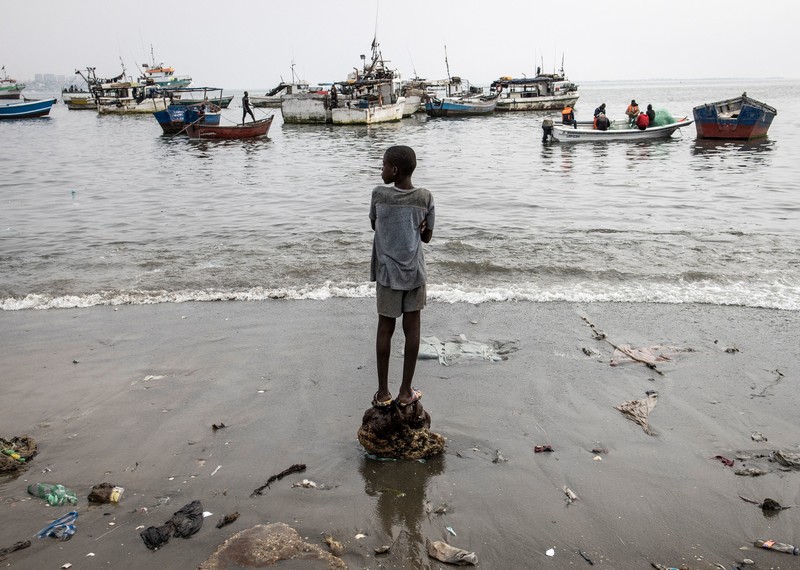
Dysfunctional international institutions need fixing
It is vital that international institutions and systems that are meant to protect our rights are strengthened rather than undermined. The first step is for UN and African human rights mechanisms and systems, including the African Union and the African Commission on Human and People’s Rights, to be fully supported and funded, so that accountability and investigations can be pursued, and justice delivered.
Amnesty International is also calling for the UN’s key decision-making body, the Security Council, to be reformed to give a voice to countries and situations which have been traditionally ignored, especially in the global south.
“The international system needs serious reform to reflect the realities of today. We cannot allow the permanent members of the UN Security Council to continue wielding their veto power and abusing their privileges unchecked. The lack of transparency and efficiency in the Council’s decision-making process leaves the entire system wide open to manipulation, abuse and dysfunction,” Said Agnès Callamard, Amnesty International’s Secretary General.
But while self-serving governments fail to put our human rights first, the human rights movement shows we can still draw inspiration and hope from the people these states should have protected.
We will never be mere bystanders when they assault our dignity, equality and freedom.
Agnès Callamard, Secretary General, Amnesty International
In South Sudan, Magai Matiop Ngong was released from prison, having been sentenced to death at the age of 15 in 2017. His release came after thousands of people around the world petitioned the authorities for his freedom.
“It is easy to feel hopeless in the face of atrocities and abuses but throughout the last year, people have shown we are not powerless,” said Agnès Callamard.
“Millions of people who have been systematically oppressed by patriarchy and racism took to the streets to demand a better tomorrow. They did so in previous years and they did so again in 2022. This should remind those in power that we will never be mere bystanders when they assault our dignity, equality and freedom.”

Double standards and weak international responses fuel repression
Amnesty International’s Annual Report for 2022/23 highlights double standards on human rights and the failure of the international community to unite around human rights and universal values.
- The West’s robust response to Russia’s aggression against Ukraine contrasts sharply with a deplorable lack of meaningful action on grave violations by some allies including Israel, Saudi Arabia and Egypt.
- As the Universal Declaration of Human Rights turns 75, Amnesty International insists that a rules-based international system must be founded on human rights and applied to everyone, everywhere.
Double standards and the failure of the international community to unite around consistently applied human rights have emboldened governments in the Middle East and North Africa (MENA) to double down on repression and abuse, Amnesty International said as it launched its annual report.
Amnesty International Report 2022/23: The State of the World’s Human Rights shows how the West’s robust response to Russia’s full-scale invasion of Ukraine contrasted sharply with the lack of meaningful action taken against egregious violations by some of their allies in the region, including Israel, Saudi Arabia and Egypt. This deliberate disregard has fuelled impunity and instability in the MENA region beset by prolonged armed conflicts, repression of basic rights and freedoms, discrimination against women and girls, and impunity for enforced disappearances, torture, unlawful killings and other crimes under international law.
“Had the system worked to hold Russia accountable for its documented crimes in Chechnya and Syria, thousands of lives might have been saved then and now, in Ukraine and elsewhere. Instead, what we have is more suffering and devastation. If Russia’s war of aggression demonstrates anything for the world’s future, it is the importance of an effective and consistently applied rules-based international order. All States must step up their efforts for a renewed rules-based order that benefits everyone, everywhere,” said Agnès Callamard, Amnesty International’s Secretary General.
MENA governments doubled down on closing spaces for dissent and prioritized investing in glitzy public relations campaigns and international events to paint a façade of progress and reform.
Heba Morayef, Regional Director for the Middle East and North Africa, Amnesty International
The report highlights the failure of governments in MENA to protect the fundamental human rights of millions of people who are grappling with economic hardship, denial of civil and political rights, regional conflict and climate-induced calamities. States across the region have used global events to boost their image and paint a picture of human rights progress, with Egypt’s hosting of the UN Climate Change Conference (COP27) and Saudi Arabia holding cultural and sports events as notable examples.
“Instead of addressing their people’s growing demands for economic and social justice and for the political space to express their demands online or offline, MENA governments doubled down on closing spaces for dissent and prioritized investing in glitzy public relations campaigns and international events to paint a façade of progress and reform,” said Heba Morayef, Regional Director for the Middle East and North Africa at Amnesty International.
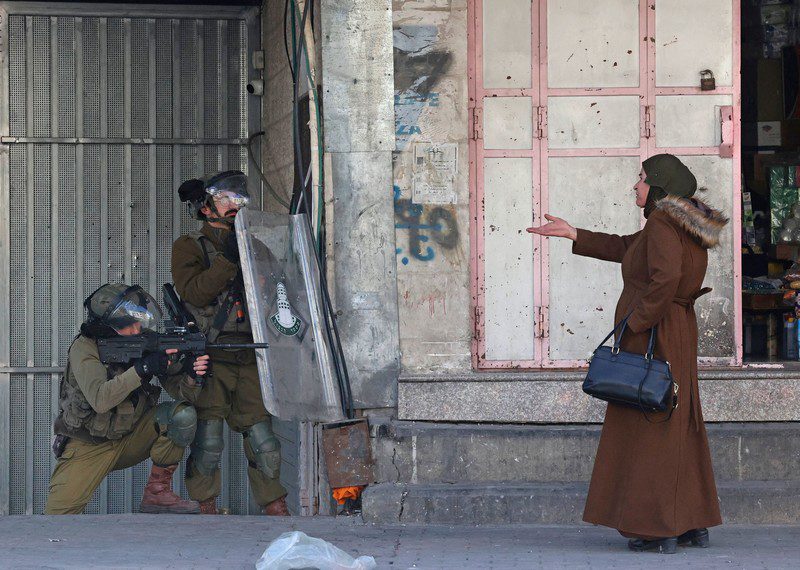
Ruthless repression of dissent
Authorities across the MENA continued to silence critics, crush protests and restrict freedom of expression, including through repressive legislation and the use of unlawful lethal force and mass arrests.
In Iran, the death of Iranian Kurdish woman Mahsa (Zhina) Amini in custody on 16 September sparked a nationwide uprising against decades of repression. Her death came amid credible reports of torture and other ill-treatment three days after being violently arrested by Iran’s so-called “morality” police who routinely subject women and girls to arbitrary arrest and detention, torture and other ill-treatment for not complying with the country’s discriminatory and abusive veiling laws.
Emboldened by decades of impunity, the Iranian authorities responded to the unprecedented popular uprising by extensively and unlawfully firing live ammunition, metal pellets and tear gas, unlawfully killing hundreds, including at least 44 children. Authorities acknowledged arresting above 22,000 people in connection to protests, while those swept up in the wave of mass arrests, including children, were subjected to torture and other ill-treatment, unjust prosecutions, enforced disappearances and unfair trials. Two young men were arbitrarily executed in connection to the protests. The authorities also shut down or disrupted internet and mobile phone networks and blocked and/or filtered WhatsApp and Instagram platforms.
In Tunisia, President Kais Said deepened his assault on rights protections and solidified his 2021 power grab with repressive legislative acts, as well as a new constitution that concentrated authority in the hands of the executive. The Tunisian authorities targeted high-profile critics and perceived enemies of the president with prosecutions, arbitrary detentions and travel bans.
Across the region, governments tightened legislative restrictions on freedom of expression and took action to silence dissenting voices. Saudi Arabia sentenced at least 15 people in 2022 to prison terms ranging between 10 and 45 years simply for their peaceful online activities using vague and overbroad terrorism and cybercrime provisions. In Yemen, the Huthi de facto authorities shuttered at least six radio stations in the capital and continued to imprison at least eight journalists, with four facing death sentences. In Morocco, human rights defender Saida Alami was sentenced to three years in jail for her social media posts denouncing the repression of journalists and activists.
In Syria, a newly-introduced cybercrime law imposed lengthy prison sentences for online criticism of the authorities or constitution. Elsewhere, the United Arab Emirates (UAE) passed a law criminalizing anyone who “mocks, insults, or damages the reputation, prestige or standing of the state” or “its founding leaders.”
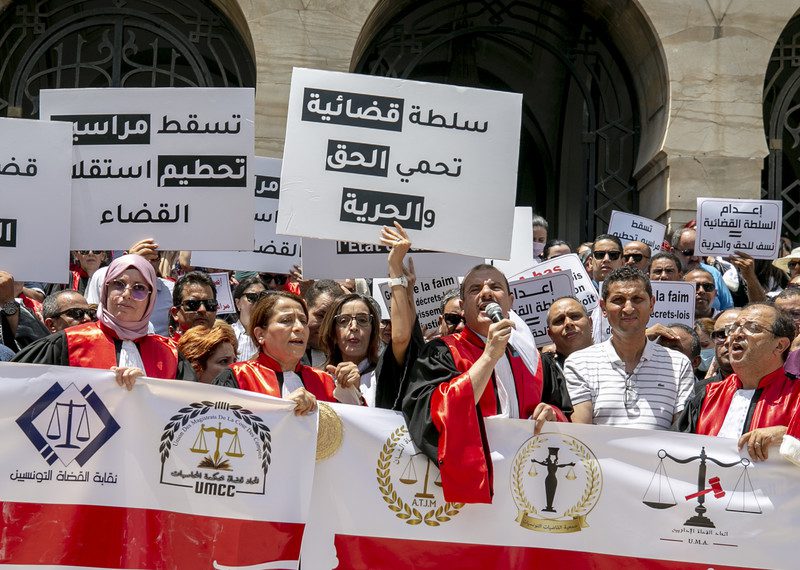
Women bear brunt as states fail to protect and respect rights
Women and girls were at the forefront of protests in Iran, challenging decades of gender-based discrimination and violence and defying the abusive compulsory veiling laws. The slogan “Woman. Life. Freedom.” reverberated across Iran, inspiring millions in the region and across the world.
Nevertheless, inconsistent approaches to human rights continued to have a stark impact on women and girls in the region. Women in MENA continued to face institutionalized discrimination and rampant gender-based violence, such as “honour killings” and femicides, usually committed with impunity. Instead of addressing gender-based violence, authorities in Egypt, Iraq and Yemen prosecuted and otherwise harassed survivors and/or women’s rights defenders.
Yemeni women were banned from travelling without a male guardian or permission from the Huthi de facto authorities. The impact of these discriminatory practices, which are not part of Yemeni law, was far-reaching, hindering women and girls’ access to healthcare and reproductive rights as Yemeni women humanitarian workers increasingly struggled to conduct fieldwork in Huthi-controlled areas.
Women and girls in the MENA region face relentless efforts to dominate and subjugate them, yet they continue to valiantly fight for their rights as we have seen in Iran.
Heba Morayef, Regional Director for the Middle East and North Africa, Amnesty International
Some states made modest gains in addressing gender inequality. Morocco ratified the Optional Protocol to CEDAW, Jordan declared men and women equal before the law and Kuwait implemented measures to increase women’s representation in public employment and leadership. Oman established a domestic violence hotline yet failed to provide shelters or pass legislation defining domestic violence.
In March 2022, Saudi Arabia introduced its first personal status law, which the authorities touted as a major victory for women’s rights. Yet, in reality, the law perpetuates the male guardianship system, fails to protect women from domestic violence, and codifies gender-based discrimination in marriage, divorce, custody, and inheritance.
“Women and girls in the MENA region face relentless efforts to dominate and subjugate them, yet they continue to valiantly fight for their rights as we have seen in Iran. Women have risked their lives to confront entrenched violence and discrimination and demand equality. Governments across the region need to finally start listening to these demands,” said Heba Morayef.
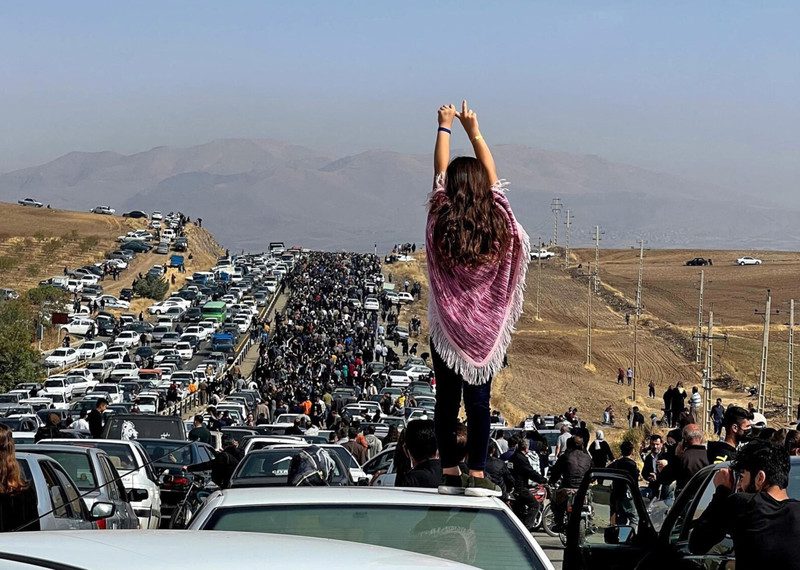
Inadequate international responses to MENA rights crises
Governments in the MENA region benefitted from the disinterest of many Western governments in addressing human rights as part of their foreign policy towards the region.
For Palestinians in the occupied West Bank, including occupied East Jerusalem, 2022 was one of the deadliest years since the UN began systematically recording casualties in 2006, with at least 151 people, including dozens of children, killed by Israeli forces. Israeli authorities continued to force Palestinians from their homes, and the government is rolling out plans to drastically expand illegal settlements across the occupied West Bank. Yet, instead of demanding an end to Israel’s system of apartheid, many Western governments gave muted or inadequate responses, turning a blind eye to the attacks and raids Palestinians are enduring.
The West’s selective condemnation of human rights violations has bolstered Israel’s continued disregard for the human rights of Palestinians, while enabling Egypt and Saudi Arabia to deflect legitimate criticism of their own rights records.
Heba Morayef, Regional Director for the Middle East and North Africa, Amnesty International
The international community also failed to hold Saudi Arabia accountable for its abysmal human rights record. Despite a Biden campaign promise to pursue accountability for the 2018 murder of journalist Jamal Khashoggi, who was a US resident, and a US intelligence report which found that Saudi Crown Prince Mohammed bin Salman was responsible for approving the murder, Biden travelled to Saudi Arabia to meet with the crown prince in July 2022. In November 2022, the Biden administration made a legal submission calling on a US court to grant Crown Prince Mohammed bin Salman immunity from a lawsuit filed by Khashoggi’s fiancée in a further betrayal of human rights.
The international community’s response to the human rights crisis in Egypt has been wholly inadequate. The authorities arbitrarily arrested hundreds of people in the run-up to the COP27 climate talks merely because they were suspected of calling for peaceful protests during the high-profile event in November 2022. The fate of prominent activist Alaa Abdel Fattah, who refused water on 6 November after being on hunger strike since April 2022, was publicly and frequently raised by multiple leaders during COP27, but did not translate into meaningful action to secure his release or that of thousands of others detained arbitrarily in horrid and punitive conditions.
“Raising human rights concerns inconsistently undermines the message, since that inconsistency indicates a lack of commitment. The West’s selective condemnation of human rights violations has bolstered Israel’s continued disregard for the human rights of Palestinians, while enabling Egypt and Saudi Arabia to deflect legitimate criticism of their own rights records. Human rights law cannot be applied on a case-by-case basis,” said Heba Morayef.
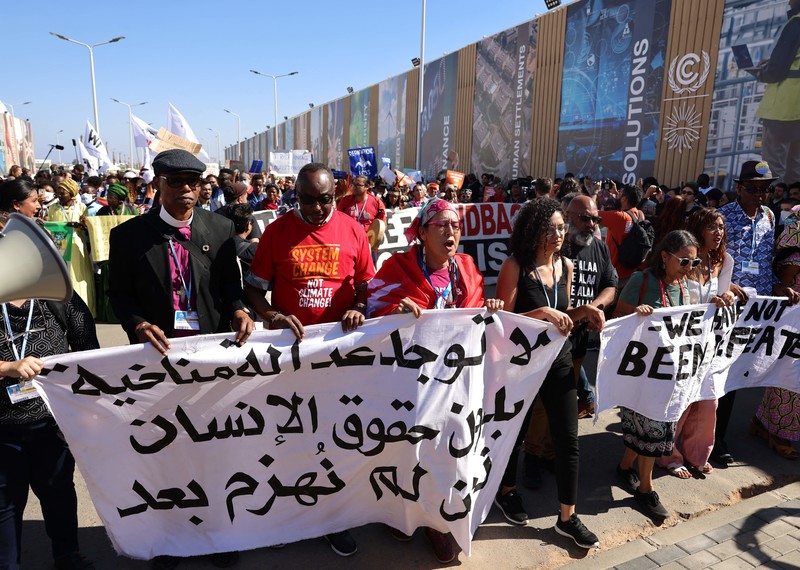
Shameless double standards and racism
Double standards by the West were also on blatant display in the way many EU countries and the USA kept their borders closed to those escaping war and repression in Syria and Libya, among other countries, but opened their doors to Ukrainians fleeing Russian aggression.
Within days of the Russian invasion of Ukraine, the EU activated the “Temporary Protection Directive” (TPD) for the first time, providing immediate protection to displaced Ukrainians and some others fleeing Russian aggression. In doing so it demonstrated that it is more than capable of receiving large numbers of people seeking safety and providing them with quick access to accommodation, the labour market and education.
However, people arriving at Europe’s borders seeking protection, and in particular racialized people who fled Syria, Afghanistan, and sub-Saharan Africa, continued to face racism and be subjected to torture and other ill-treatment and violent rejection at the borders. Their protection needs or individual circumstances were often not even examined. In June, 37 sub-Saharan African people were killed and 77 others remain missing following the deadly actions of Spanish and Moroccan security officials on the border of Spain’s Melilla exclave.
Zacharias, 22, from Chad, told Amnesty International: “Moroccan and Spanish security forces were throwing everything at us, gas bombs, stones, rubber bullets, rubber balls…We couldn’t see anything and it was difficult to breathe.”
While Ukrainian refugees were welcomed with open arms in Europe and other countries, people seeking refuge from MENA were subjected to arbitrary detention, refoulement and mass expulsions.
Heba Morayef, Regional Director for the Middle East and North Africa, Amnesty International
Thousands of people were summarily returned from Bulgaria and Greece to Türkiye; from Türkiye to Iran and Syria; from Cyprus to Lebanon; from Croatia to Bosnia and Herzegovina; from Hungary to Serbia; and from Latvia, Lithuania and Poland to Belarus. Those who managed to reach EU territory were arbitrarily detained, including for long periods, or unlawfully returned, often violently. After crossing the borders into Lithuania, Latvia and Poland, they were again subjected to torture and other ill-treatment.
People attempting to reach European shores by boat were often intercepted by the EU-funded Libyan Coast Guard and brought back to Libya, only to be systematically subjected to prolonged arbitrary detention in appalling conditions and exposed to torture including rape, arbitrary killings, enforced disappearances, forced labour and exploitation.
“European nations have demonstrated that they know what they must do in response to people seeking international protection and, crucially, that they can do it. While Ukrainian refugees were welcomed with open arms in Europe and other countries, people seeking refuge from MENA were subjected to arbitrary detention, refoulement and mass expulsions. The EU consciously funded the Libyan coastguards to intercept refugees and migrants and detain them indefinitely in horrid conditions,” said Heba Morayef.
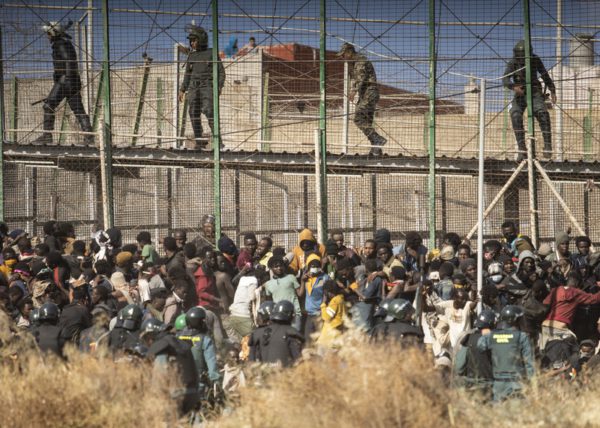
Weakened international institutions
Double standards and inconsistencies also lead to undermining the faith of people in the region in international institutions and human rights mechanisms, at a time when they are ever more critical given the absence of domestic avenues for accountability.
In Syria, despite credible evidence that the Syrian government and armed opposition groups continue to commit atrocities, including unlawful attacks on civilians, arbitrary arrests and torture, international mechanisms have failed to hold those responsible to account. Russia has not only used its veto power at the UN Security Council to shield the Syrian government from scrutiny, but also to severely limit the humanitarian assistance the UN can provide to the over 4 million people living in opposition-controlled areas in northern Syria. However, some countries, such as Germany and France, are investigating and prosecuting those suspected of committing war crimes and crimes against humanity in Syria in their national courts under the principle of universal jurisdiction.
In Lebanon, the UN Human Rights Council once again failed to heed the calls for an international investigation into the deadly Beirut port blast from victims’ families, survivors and civil society. But there was a flicker of hope when at least 38 states signed a joint statement at the 52nd session of the Human Rights Council on 7 March calling on the Lebanese authorities to ensure a swift, independent, and credible investigation into the explosion.
It is vital that international institutions and systems that are meant to protect our rights are strengthened rather than undermined.
Heba Morayef, Regional Director for the Middle East and North Africa, Amnesty International
In November, the UN Human Rights Council established a fact-finding mission to investigate human rights violations relating to the protests that erupted on 16 September, in a welcome but long overdue step. Amnesty International has been working towards the establishment of an international investigative and accountability mechanism on Iran for years, and has long argued that the crisis of systematic impunity in Iran fuels crimes under international law.
“From Syria to Lebanon and Israel to Yemen, ordinary people paid the price for weakened international institutions and systems. Amnesty International is calling for UN human rights mechanisms to be fully funded, so that accountability and investigations can be pursued and for countries to cooperate with international investigative mechanisms and not seek to undermine them. It is vital that international institutions and systems that are meant to protect our rights are strengthened rather than undermined,” said Heba Morayef.
